Samaneh Aghelpasand
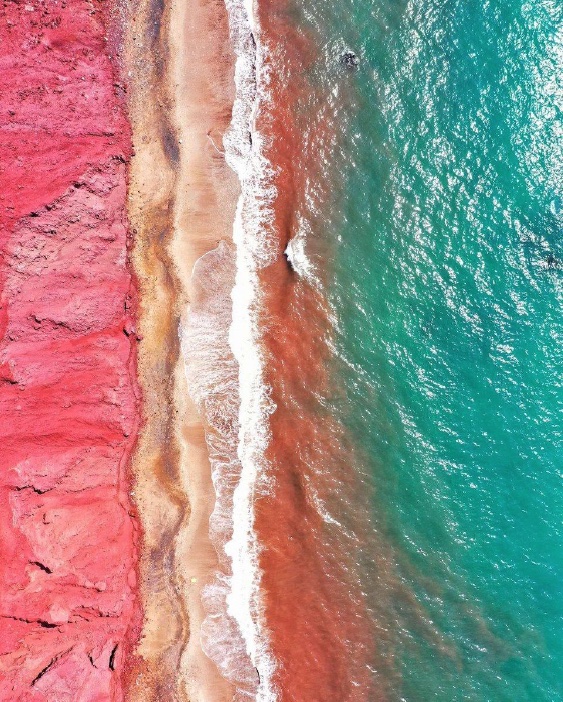 Hello everyone! My name is Samaneh Aghelpasand, and I’m proud to say that I hail from
Iran—a country that is not only beautiful but also rich in history and culture. Iran is known
for its four distinct seasons, each bringing its charm, and its diverse climates make it a unique
place to explore. From the lush greenery of the northern regions to the arid deserts of the
south, the natural beauty of Iran is truly captivating.
Hello everyone! My name is Samaneh Aghelpasand, and I’m proud to say that I hail from
Iran—a country that is not only beautiful but also rich in history and culture. Iran is known
for its four distinct seasons, each bringing its charm, and its diverse climates make it a unique
place to explore. From the lush greenery of the northern regions to the arid deserts of the
south, the natural beauty of Iran is truly captivating.
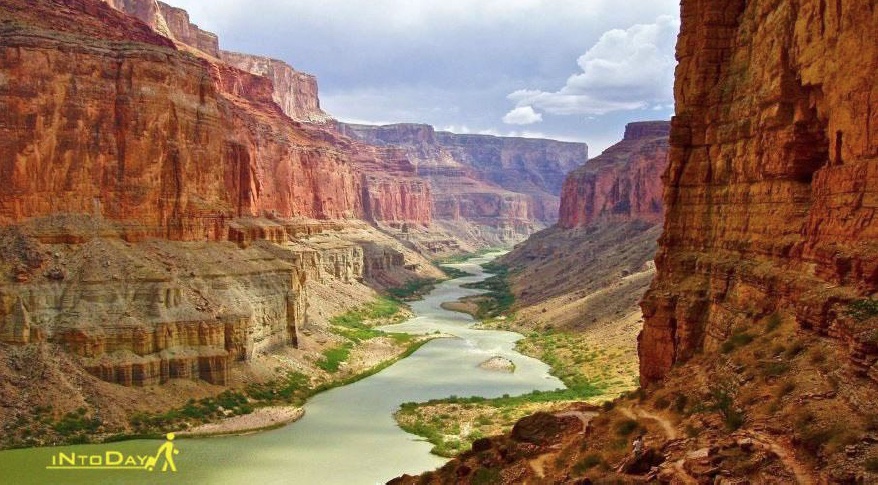 Historically, Iran was once the heart of the great Persian Empire, which was known for its
advancements in art, science, and governance. This ancient kingdom laid the foundations for
some of the earliest civilizations, and it is fascinating to think that Iran is home to the first
written rules for humanity. The rich tapestry of history, culture, and tradition makes Iran a
remarkable place, one that I carry with pride.
I had hoped to share my experiences in person during the ASPIRE summer school program,
but unfortunately, I faced challenges in obtaining a visa. While this was disappointing, I
chose to embrace the situation and participate in the program online. This decision turned out
to be a blessing in disguise, as it allowed me to connect with a diverse group of scholars and
enthusiasts from around the world.
Historically, Iran was once the heart of the great Persian Empire, which was known for its
advancements in art, science, and governance. This ancient kingdom laid the foundations for
some of the earliest civilizations, and it is fascinating to think that Iran is home to the first
written rules for humanity. The rich tapestry of history, culture, and tradition makes Iran a
remarkable place, one that I carry with pride.
I had hoped to share my experiences in person during the ASPIRE summer school program,
but unfortunately, I faced challenges in obtaining a visa. While this was disappointing, I
chose to embrace the situation and participate in the program online. This decision turned out
to be a blessing in disguise, as it allowed me to connect with a diverse group of scholars and
enthusiasts from around the world.
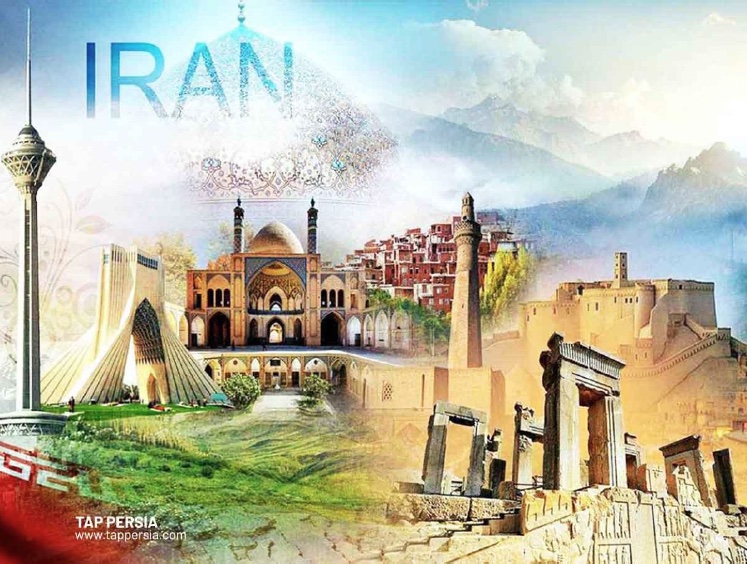 Participating in the ASPIRE program was a transformative experience. I had the opportunity
to learn about fast radio bursts (FRBs), which are one of the most intriguing phenomena in
the universe. These brief but intense flashes of radio waves have puzzled astronomers for
years, and studying their enigmatic nature using polarimetry techniques was both challenging
and exhilarating. Analyzing data from the CHIME radio telescopes provided me with insights
into the mechanisms behind these bursts and their potential origins.
Participating in the ASPIRE program was a transformative experience. I had the opportunity
to learn about fast radio bursts (FRBs), which are one of the most intriguing phenomena in
the universe. These brief but intense flashes of radio waves have puzzled astronomers for
years, and studying their enigmatic nature using polarimetry techniques was both challenging
and exhilarating. Analyzing data from the CHIME radio telescopes provided me with insights
into the mechanisms behind these bursts and their potential origins.
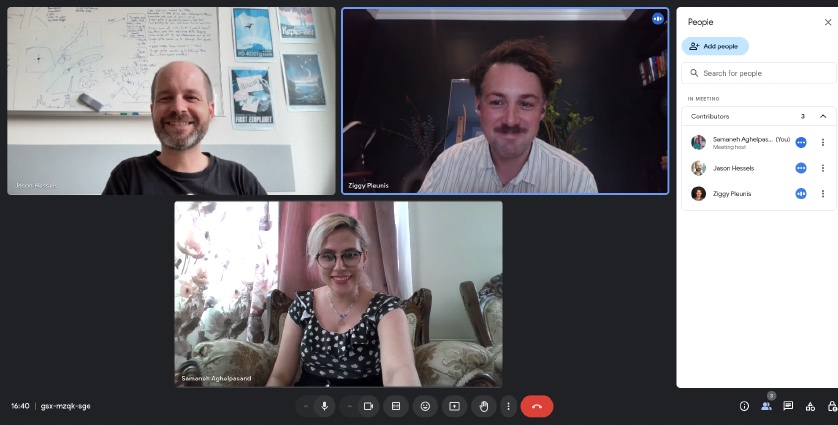 The knowledge I gained during the program significantly expanded my understanding of
radio astronomy, a field I am deeply passionate about. Each lecture and discussion enriched
my perspective and equipped me with the tools to approach research questions more
critically. I was particularly fascinated by the role of polarization in understanding the
properties of FRBs, and I found myself eager to dive deeper into the subject.
The knowledge I gained during the program significantly expanded my understanding of
radio astronomy, a field I am deeply passionate about. Each lecture and discussion enriched
my perspective and equipped me with the tools to approach research questions more
critically. I was particularly fascinated by the role of polarization in understanding the
properties of FRBs, and I found myself eager to dive deeper into the subject.
One of the most rewarding aspects of this experience was the opportunity to share my newfound knowledge with my young students and fellow countrymen and women back in Iran. Unfortunately, we currently lack access to radio telescopes and the resources to learn how to utilize data from them. Therefore, I see it as my mission to inspire the next generation of astronomers in my community. I plan to conduct workshops and seminars to introduce them to the wonders of radio astronomy, helping them understand the significance of FRBs and the potential they hold for unraveling the mysteries of our universe. In conclusion, while the journey may not have unfolded as I initially envisioned, I am grateful for the opportunity to learn and grow through the ASPIRE summer school program. I look forward to continuing my research in radio astronomy and sharing my passion with others. Thank you for joining me on this journey, and I can’t wait to share more about my experiences and discoveries in the fascinating realm of astronomy!
Anastag Bandhyopadhyay
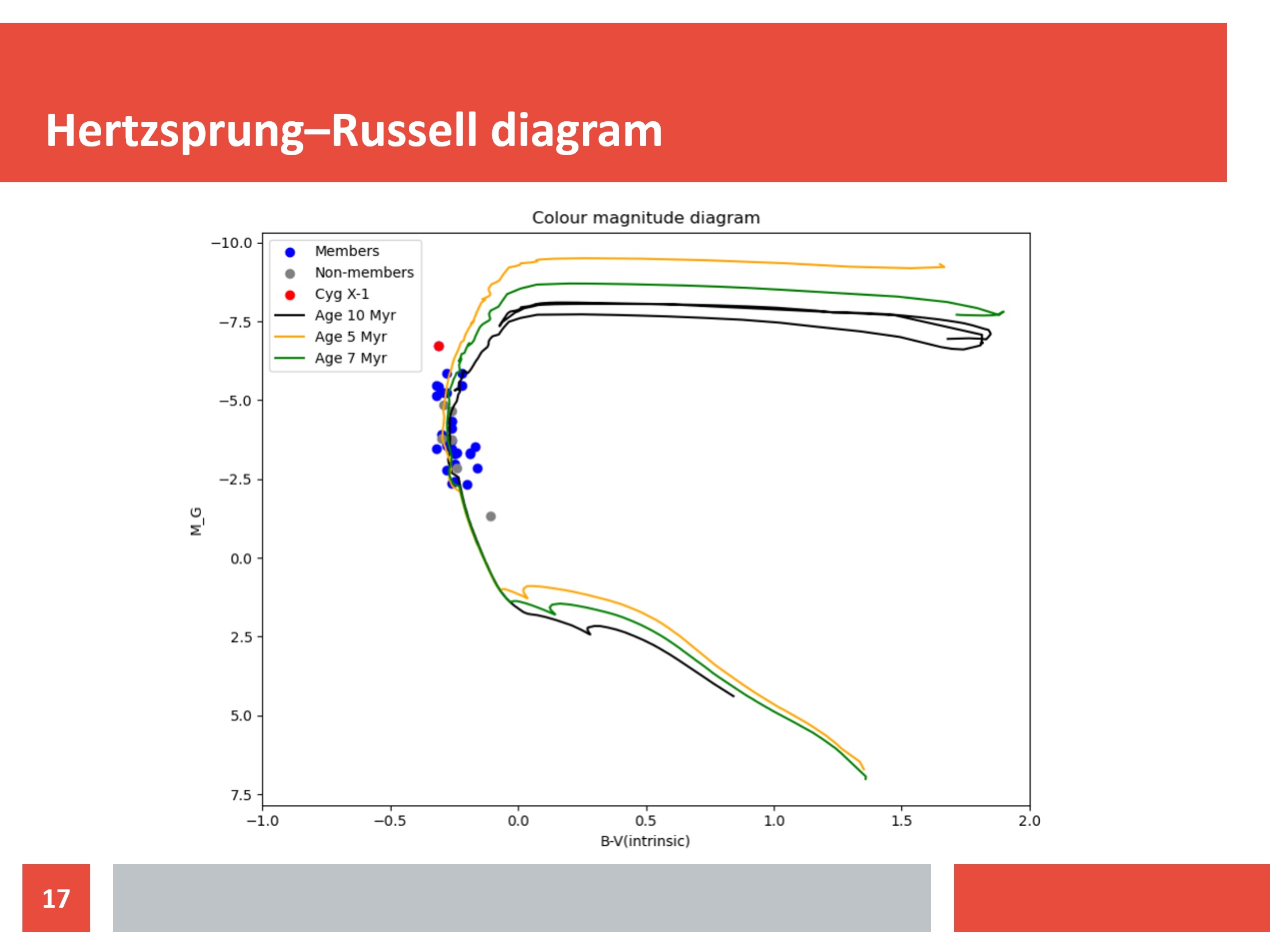 Hi, I am Anastag Bandyopadhyay, from India.
I am currently a master’s student at St. Xavier's College (Autonomous), Kolkata. I hold a Bachelor's Degree in Physics from Bidhannagar College, Kolkata. I have developed my interest in Astronomy from a very young age. I found the infinite span of the universe and the very notion of space travel absolutely wondrous, and I started yearning to be among the stars. In my third year at undergraduate program, I was taught a course in Astrophysics that only fuelled my motivation to be in the field.
Hi, I am Anastag Bandyopadhyay, from India.
I am currently a master’s student at St. Xavier's College (Autonomous), Kolkata. I hold a Bachelor's Degree in Physics from Bidhannagar College, Kolkata. I have developed my interest in Astronomy from a very young age. I found the infinite span of the universe and the very notion of space travel absolutely wondrous, and I started yearning to be among the stars. In my third year at undergraduate program, I was taught a course in Astrophysics that only fuelled my motivation to be in the field.
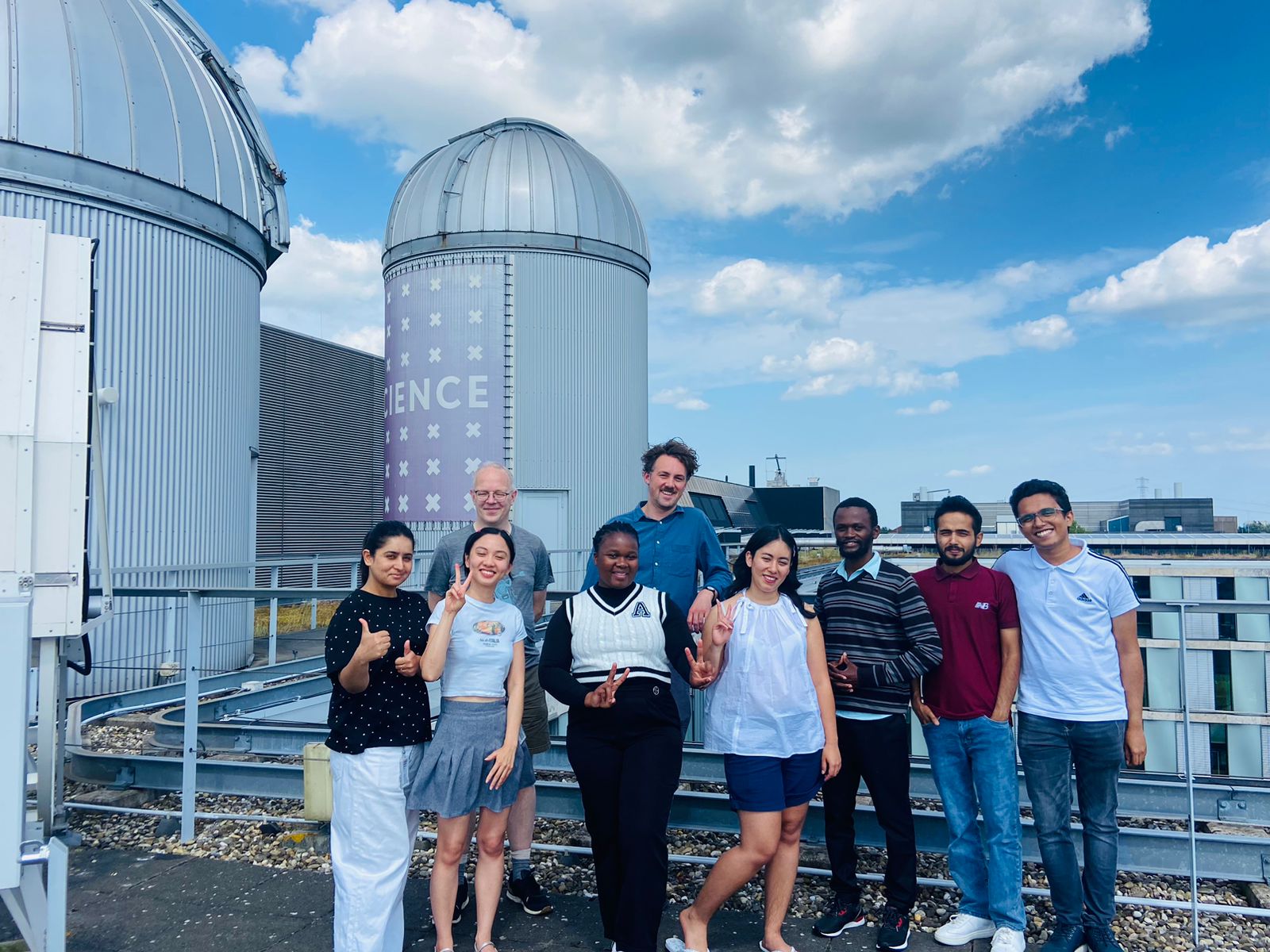 After six weeks of being at Anton Pannekoek Institute (API), I cannot imagine how blessed I was to be granted this great opportunity. Other than all the interesting research going on at API, I really loved the environment of research, the exceptional kindness of the people, the special love they express for the subject, and the zeal of showing an absolute novice like me who had no prior research experience, that there’s no limit to one’s potential and it is possible to be so in love with the research I am doing. No matter what stupid questions I had, not a single person ever hesitated to help me out. The ASPIRE program is a great example of how we can come from different backgrounds and experiences and work in unity to share our love for this field and engage in exciting research. I really enjoyed attending the colloquiums, group meetings and seminars, where I got the opportunity to participate in insightful discussions. Truthfully speaking, the API will always be my big science family away from home and I miss them more than I can properly explain. More so, the ASPIRE program gave me a chance to connect and bond with other astronomers as well as the other ASPIRE fellows from all over the world.
After six weeks of being at Anton Pannekoek Institute (API), I cannot imagine how blessed I was to be granted this great opportunity. Other than all the interesting research going on at API, I really loved the environment of research, the exceptional kindness of the people, the special love they express for the subject, and the zeal of showing an absolute novice like me who had no prior research experience, that there’s no limit to one’s potential and it is possible to be so in love with the research I am doing. No matter what stupid questions I had, not a single person ever hesitated to help me out. The ASPIRE program is a great example of how we can come from different backgrounds and experiences and work in unity to share our love for this field and engage in exciting research. I really enjoyed attending the colloquiums, group meetings and seminars, where I got the opportunity to participate in insightful discussions. Truthfully speaking, the API will always be my big science family away from home and I miss them more than I can properly explain. More so, the ASPIRE program gave me a chance to connect and bond with other astronomers as well as the other ASPIRE fellows from all over the world.
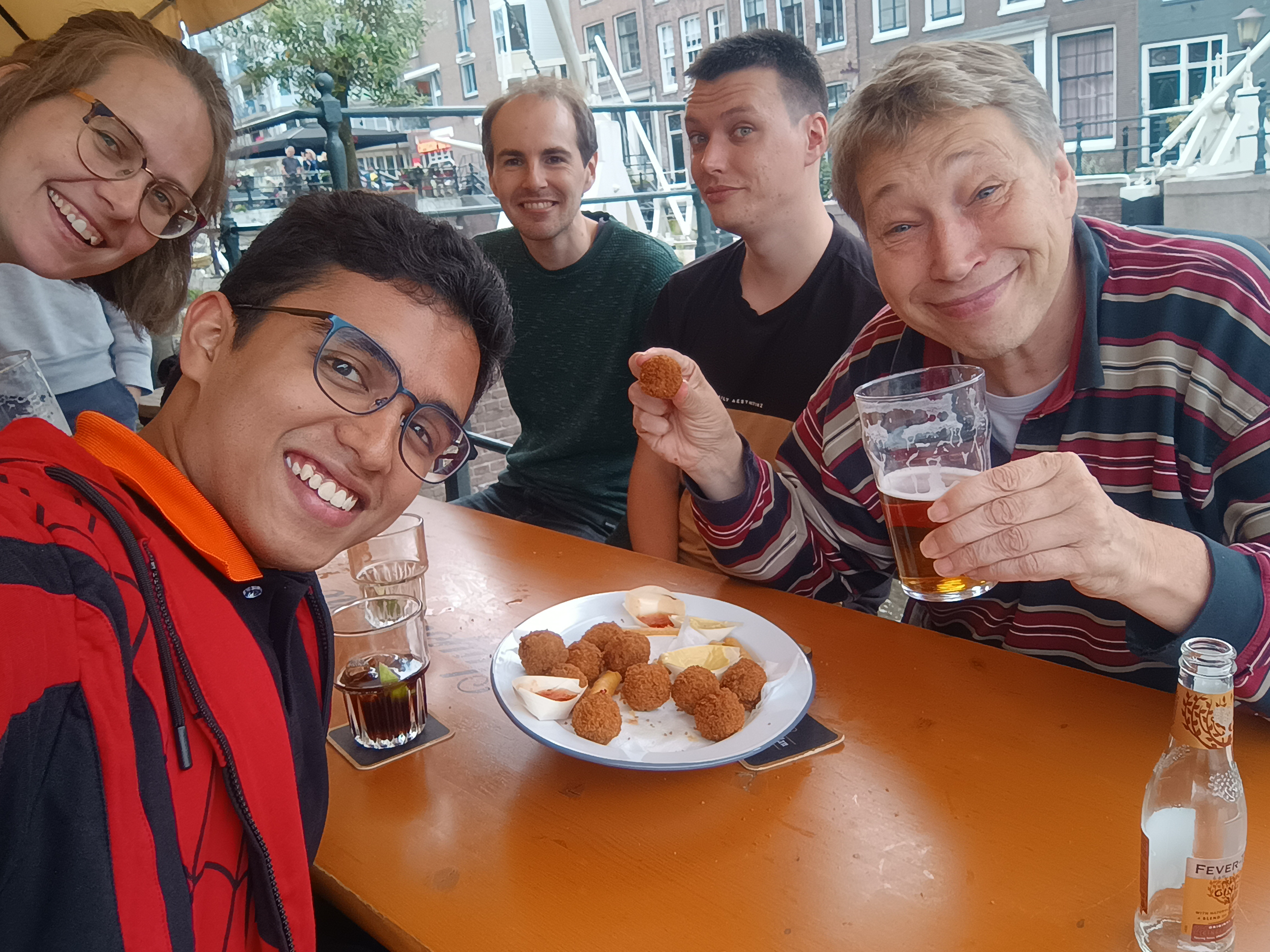
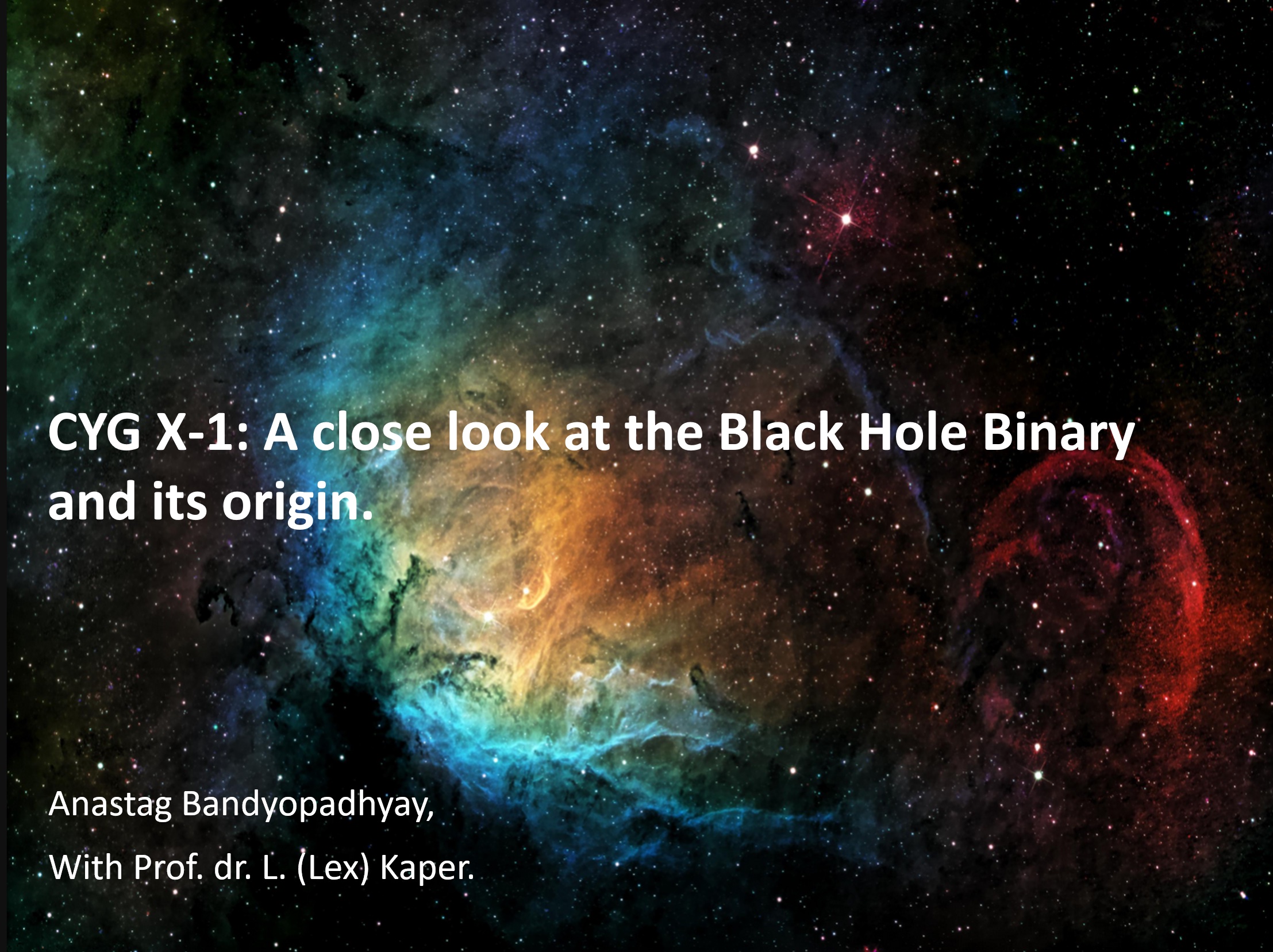 During the six weeks, I got the opportunity to interact with my respected supervisor: Prof. dr. L. (Lex) Kaper and I would like to thank him profusely for his numerous suggestions and invaluable help, pertaining to my project. It would be very remiss of me not to also mention: Dr. Rol, Dr. Sarah and Mitchel Stoop, who helped me immensely as well.
During the six weeks, I got the opportunity to interact with my respected supervisor: Prof. dr. L. (Lex) Kaper and I would like to thank him profusely for his numerous suggestions and invaluable help, pertaining to my project. It would be very remiss of me not to also mention: Dr. Rol, Dr. Sarah and Mitchel Stoop, who helped me immensely as well.
Firstly, I worked on understanding OB runaway stars and their possible detection through GAIA DR3 data. During the literature review, the project’s focus shifted to black hole binaries and their properties that could possibly provide insight into how they are formed. In view of this object, we delved deeper into the most famous black hole binary we know of, CYG X-1. We studied its relation to CYG OB3 on account of its proper motion and gained valuable knowledge on its lesser-known properties. Through this, I gained a whole new appreciation for the field of Massive Stars. I came to learn a lot about Black Holes, Massive Stars, Binary Systems and their evolution. This also resulted in me gaining experience on how to deal with GAIA data and make reasonable conclusions from the properties of the objects contained in its catalogue. I hope to continue to work on massive stars even during my PhD and getting to do one from API would undoubtedly be a dream come true but we shall see! Fingers crossed.
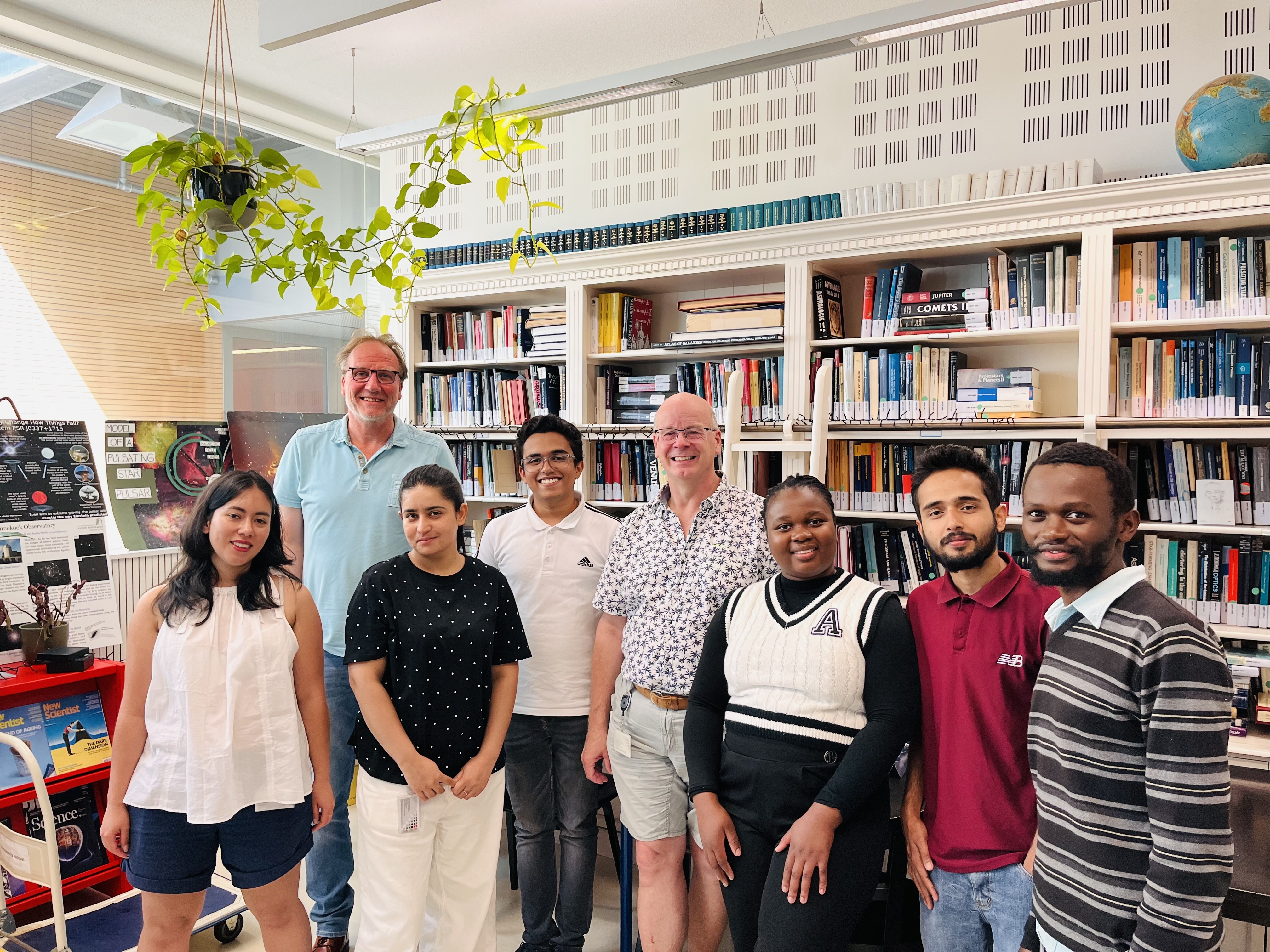
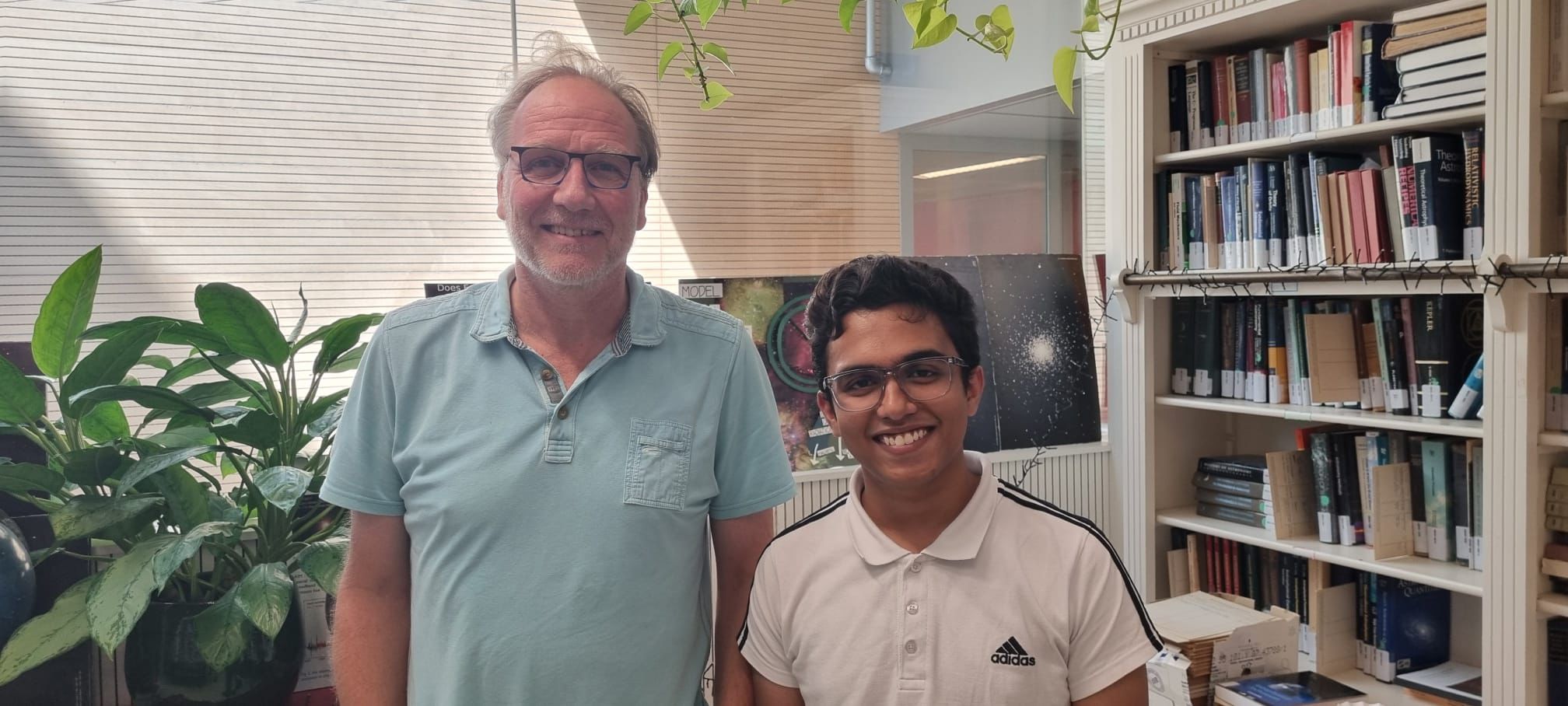 In conclusion, I can confidently say that the six weeks program was a great plus to my academic life as an aspiring astronomer. This has been undoubtedly one of the best summers of my life. What I have learnt from the API community at large in both personal and academic terms, I shall strive to carry with me all my life. Thank you!
In conclusion, I can confidently say that the six weeks program was a great plus to my academic life as an aspiring astronomer. This has been undoubtedly one of the best summers of my life. What I have learnt from the API community at large in both personal and academic terms, I shall strive to carry with me all my life. Thank you!
Zarnigah Kayani
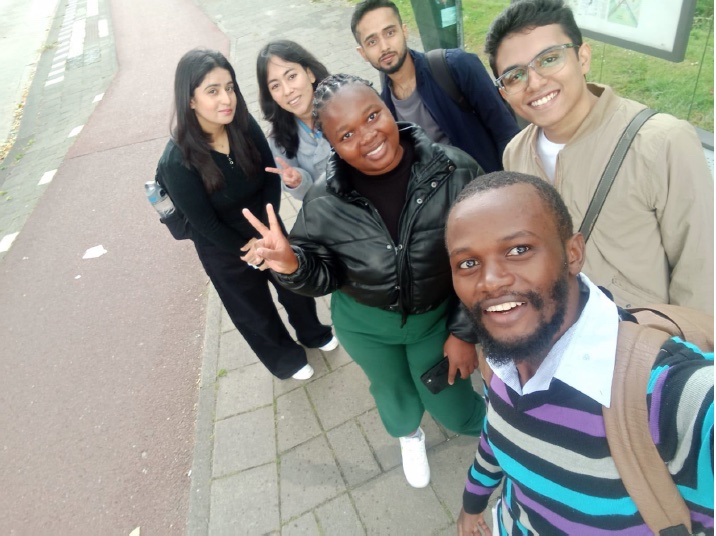 Hello, I’m Zarnigah Kayani from Pakistan, Pakistan is a country of stunning natural beauty and warm hospitality. From the towering peaks of the Himalayas and Karakoram in the north to the vast deserts and lush plains in the south and I am a graduate of the Institute of Space Technology in Islamabad. During my master’s, I worked on neutron star black hole mergers, visualising the parameters and evolution processes of NSBH and BHNS systems. My journey in astronomy led me to the University of Amsterdam, where I had the privilege of participating in the ASPIRE program. This experience has been a beautiful mix of academic rigor, cultural exploration, and delightful surprises. Being an intern in the ASPIRE program at the Anton Pannekoek Institute (API) has been like a dream come true.
Hello, I’m Zarnigah Kayani from Pakistan, Pakistan is a country of stunning natural beauty and warm hospitality. From the towering peaks of the Himalayas and Karakoram in the north to the vast deserts and lush plains in the south and I am a graduate of the Institute of Space Technology in Islamabad. During my master’s, I worked on neutron star black hole mergers, visualising the parameters and evolution processes of NSBH and BHNS systems. My journey in astronomy led me to the University of Amsterdam, where I had the privilege of participating in the ASPIRE program. This experience has been a beautiful mix of academic rigor, cultural exploration, and delightful surprises. Being an intern in the ASPIRE program at the Anton Pannekoek Institute (API) has been like a dream come true.
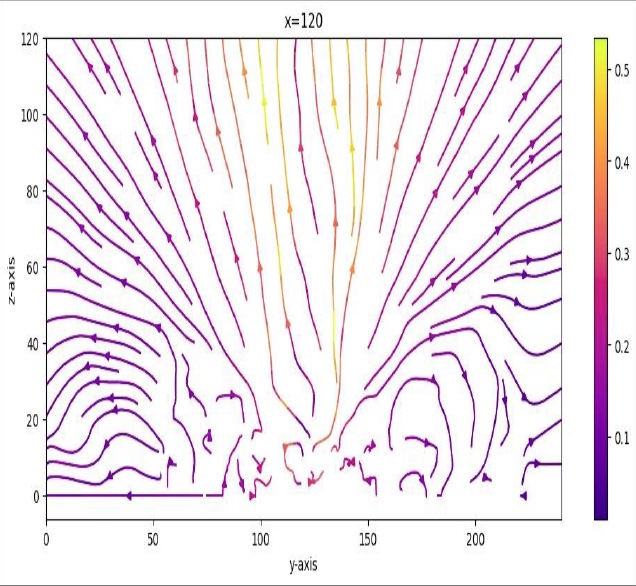 I still find it hard to believe how fortunate I am to be an ASPIRE student, even after 6 weeks of participating in and appreciating the academic environment at Anton Pannekoek Institute (API). Aside from the fascinating research being conducted at API, I was particularly impressed by the people's extraordinary qualities, their particular affection for the newcomers, and their fervour for demonstrating to them that anything is possible and that the sky is no longer the limit. The biggest obstacle, in my opinion, is to prove to someone that they are capable of succeeding. The warmth of the API made my forty days of work seem like only two weeks! API exemplifies how diverse backgrounds and expertise can work together to achieve exceptional results. Attending colloquiums, group meetings, and seminars allowed me to hear intelligent conversations, which I truly loved. To be honest, my huge intellectual family far from home will remain the API. More importantly, the ASPIRE program allowed me to form bonds and connections with astronomers worldwide in addition to my fellow ASPIRE students.
I still find it hard to believe how fortunate I am to be an ASPIRE student, even after 6 weeks of participating in and appreciating the academic environment at Anton Pannekoek Institute (API). Aside from the fascinating research being conducted at API, I was particularly impressed by the people's extraordinary qualities, their particular affection for the newcomers, and their fervour for demonstrating to them that anything is possible and that the sky is no longer the limit. The biggest obstacle, in my opinion, is to prove to someone that they are capable of succeeding. The warmth of the API made my forty days of work seem like only two weeks! API exemplifies how diverse backgrounds and expertise can work together to achieve exceptional results. Attending colloquiums, group meetings, and seminars allowed me to hear intelligent conversations, which I truly loved. To be honest, my huge intellectual family far from home will remain the API. More importantly, the ASPIRE program allowed me to form bonds and connections with astronomers worldwide in addition to my fellow ASPIRE students.
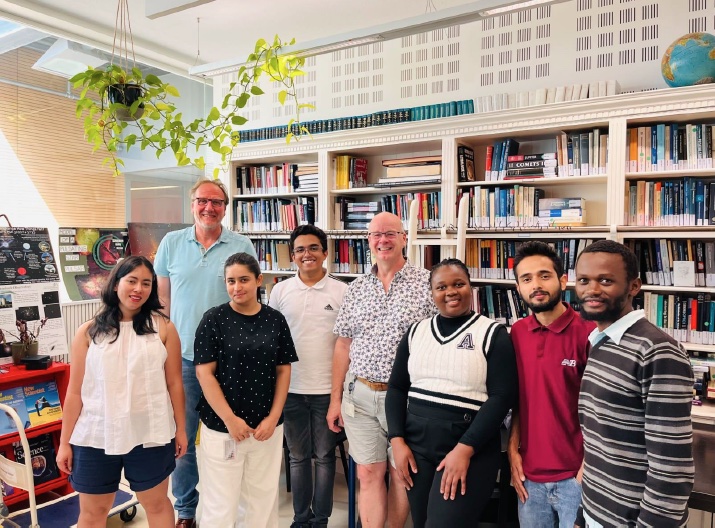 A key highlight of my experience has been collaborating closely with my supervisor, Dr. Philipp Mösta. His guidance has been invaluable as we worked on visualising binary neutron star mergers using the FieldVis package. Together, we developed 2D velocity plots on specialised workstations to analyse neutron star dynamics and enhanced visualisations of jets, magnetic fields, and accretion disks in these simulations. I’m incredibly thankful to Dr. Mösta for his support and mentorship throughout this project.
A key highlight of my experience has been collaborating closely with my supervisor, Dr. Philipp Mösta. His guidance has been invaluable as we worked on visualising binary neutron star mergers using the FieldVis package. Together, we developed 2D velocity plots on specialised workstations to analyse neutron star dynamics and enhanced visualisations of jets, magnetic fields, and accretion disks in these simulations. I’m incredibly thankful to Dr. Mösta for his support and mentorship throughout this project.
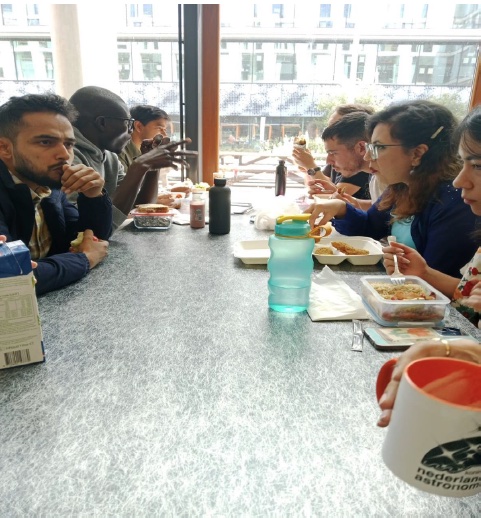 Every Tuesday and Thursday, my day begins with a lecture that kicks off the moment I see Professor Ralph’s face. There’s something about that moment that instantly refreshes me and sets the tone for a productive day ahead. The lectures are not just about absorbing knowledge; they are moments where science comes alive, sparking curiosity and fuelling our passion for discovery.
One of my favourite moments has been the 11 AM coffee breaks, where everyone gathers not just to talk about studies, but to share stories, laughter, and life beyond the lab. I’ve particularly enjoyed Ralph’s and Lex’s company during these breaks. Another thing that stands out is how everyone comes together for lunch, which always reminds me of my family back home.
Of course, it’s not all work and no play. Amsterdam has so much to offer, and I’ve made the most of every moment. Coffee breaks have become mini-adventures, often leading me to explore nearby museums and shopping centers in central station. The city’s rich cultural history is woven into every corner, making each stroll an opportunity to discover something new. And let’s not forget the food pancakes have become a staple in my diet here, each bite a delicious reminder of the city’s culinary delights.
Every Tuesday and Thursday, my day begins with a lecture that kicks off the moment I see Professor Ralph’s face. There’s something about that moment that instantly refreshes me and sets the tone for a productive day ahead. The lectures are not just about absorbing knowledge; they are moments where science comes alive, sparking curiosity and fuelling our passion for discovery.
One of my favourite moments has been the 11 AM coffee breaks, where everyone gathers not just to talk about studies, but to share stories, laughter, and life beyond the lab. I’ve particularly enjoyed Ralph’s and Lex’s company during these breaks. Another thing that stands out is how everyone comes together for lunch, which always reminds me of my family back home.
Of course, it’s not all work and no play. Amsterdam has so much to offer, and I’ve made the most of every moment. Coffee breaks have become mini-adventures, often leading me to explore nearby museums and shopping centers in central station. The city’s rich cultural history is woven into every corner, making each stroll an opportunity to discover something new. And let’s not forget the food pancakes have become a staple in my diet here, each bite a delicious reminder of the city’s culinary delights.
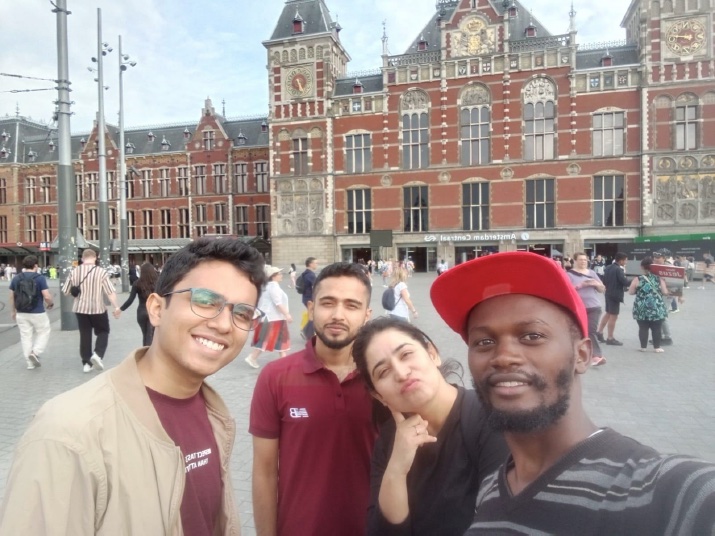
 Public transport in Amsterdam is a story in itself. Whether it’s running to catch the morning bus, hopping on a tram, or relaxing on a train, each ride is an experience. I even got myself a bike, but I must admit it hasn’t seen much use rain seems to be a constant companion, making public transport my go to choice.
Reflecting on my time here, I realise how much I’ve grown both academically and personally. The ASPIRE program has not only deepened my knowledge in astronomy but has also allowed me to immerse myself in a new culture, meet incredible people, and create memories that I’ll cherish forever.
Public transport in Amsterdam is a story in itself. Whether it’s running to catch the morning bus, hopping on a tram, or relaxing on a train, each ride is an experience. I even got myself a bike, but I must admit it hasn’t seen much use rain seems to be a constant companion, making public transport my go to choice.
Reflecting on my time here, I realise how much I’ve grown both academically and personally. The ASPIRE program has not only deepened my knowledge in astronomy but has also allowed me to immerse myself in a new culture, meet incredible people, and create memories that I’ll cherish forever.
Patrick Njoroge Mwaniki
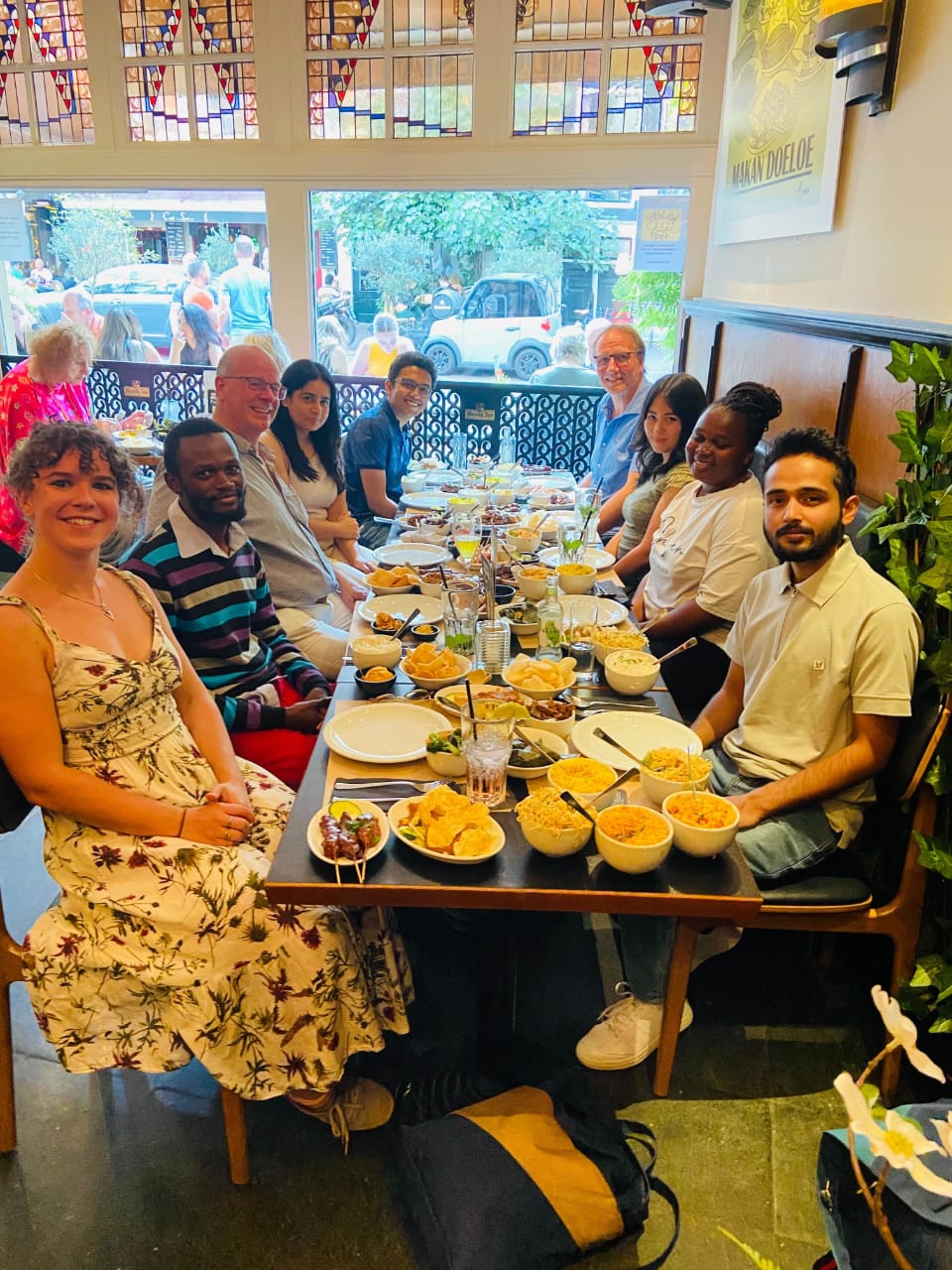 Hi! I’m Patrick Njoroge Mwaniki from Meru University of Science and Technology in Kenya. I hold a Bachelor of Education Science in Mathematics and Physics. Currently, I am a final year student studying for a Master of Science in Physics (Astrophysics). My MSc research project is on the Multi-wavelength study of supernova remnant G7.7-3.7 using MeerKAT data in L-band (radio), XMM-Newton telescope (X-ray) and Isaac Newton Telescope in La Palma (optical). I presented a poster on this research work in XXXII IAU General Assembly 2024 in Cape Town South Africa.
Hi! I’m Patrick Njoroge Mwaniki from Meru University of Science and Technology in Kenya. I hold a Bachelor of Education Science in Mathematics and Physics. Currently, I am a final year student studying for a Master of Science in Physics (Astrophysics). My MSc research project is on the Multi-wavelength study of supernova remnant G7.7-3.7 using MeerKAT data in L-band (radio), XMM-Newton telescope (X-ray) and Isaac Newton Telescope in La Palma (optical). I presented a poster on this research work in XXXII IAU General Assembly 2024 in Cape Town South Africa.
My background skills and experts in astrophysics have been complemented and concretized by my participation in various summer programs I have attended including Introduction to Astronomy and Astronomy in Botswana, ORP School on Multi-Messenger Astrophysics in UK and most importantly ASPIRE in API, Netherlands. Coming from a country in the development process of Astronomy and Astrophysics, I usually maximize my participation in those summer programs to grasp knowledge, skills and network with experts in this field for future research collaborations. I’m very passionate about observation astrophysics with a very strong aspiration to start soon a PhD in observation Astrophysics with a future goal of being a researcher in observation astrophysics.
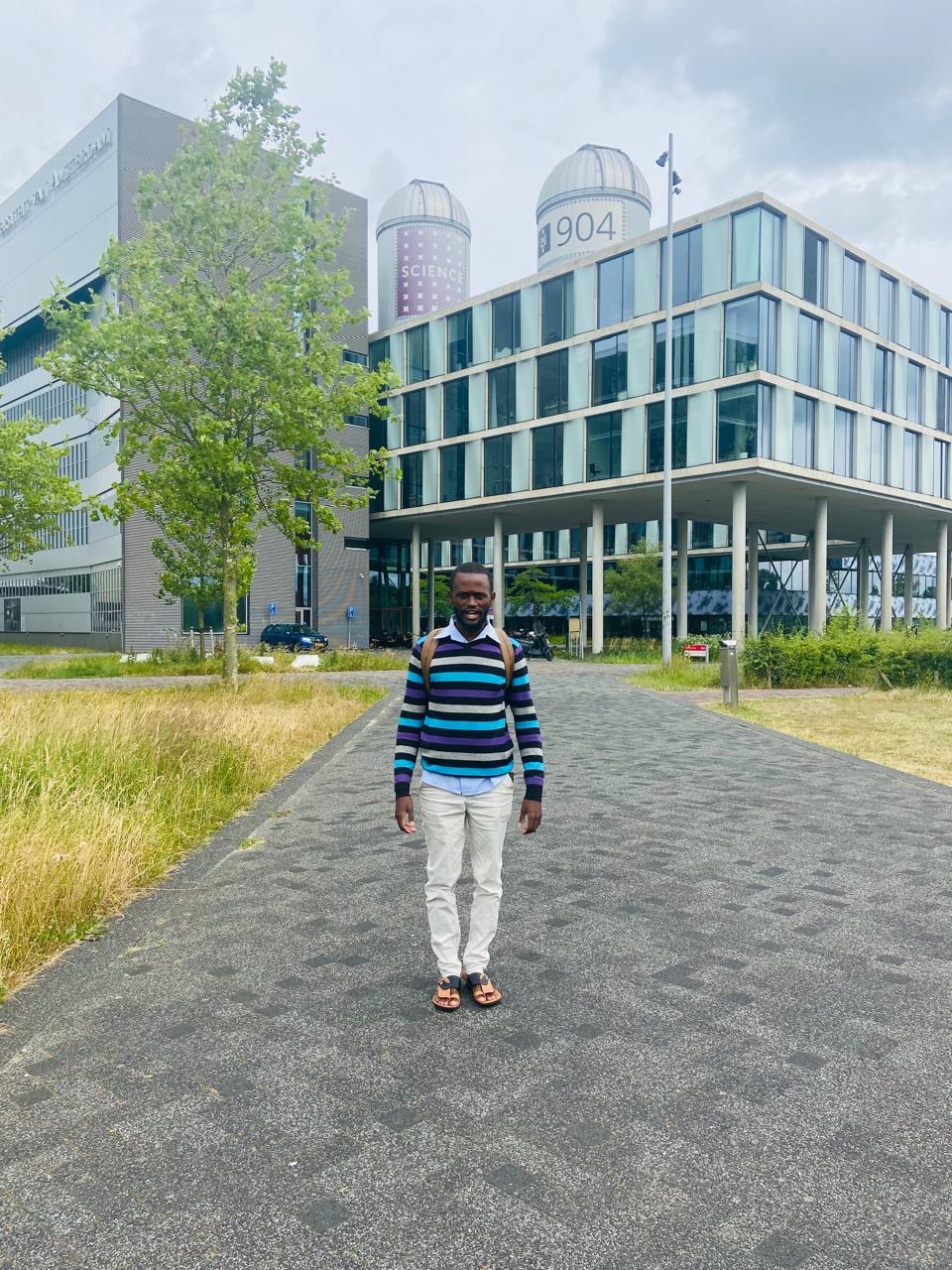 My participation in ASPIRE in API gave me a golden opportunity to interact with low-frequency radio data from LOFAR to hunt for transient sources in radio images under the supervision of Dr. Antonia Rowlinson, Prof.dr. Ralph Wijers and Iris de Ruiter. In this research, I was processing radio images of the 8-hour deep survey with LOFAR telescope using a successful transient detection pipeline (called Trap pipeline) to search for sources like variables candidates and transients. Despite, the short duration of the program (6 weeks) I managed to successfully process all my radio images of the whole data set and presented my results in week 6. This research was in my field of interest (observations) and completion of the 6-week ASPIRE program was not the end of this research, but I will continue to work virtually on this research to search for more variables and transient sources in collaboration with my supervisors.
My participation in ASPIRE in API gave me a golden opportunity to interact with low-frequency radio data from LOFAR to hunt for transient sources in radio images under the supervision of Dr. Antonia Rowlinson, Prof.dr. Ralph Wijers and Iris de Ruiter. In this research, I was processing radio images of the 8-hour deep survey with LOFAR telescope using a successful transient detection pipeline (called Trap pipeline) to search for sources like variables candidates and transients. Despite, the short duration of the program (6 weeks) I managed to successfully process all my radio images of the whole data set and presented my results in week 6. This research was in my field of interest (observations) and completion of the 6-week ASPIRE program was not the end of this research, but I will continue to work virtually on this research to search for more variables and transient sources in collaboration with my supervisors.
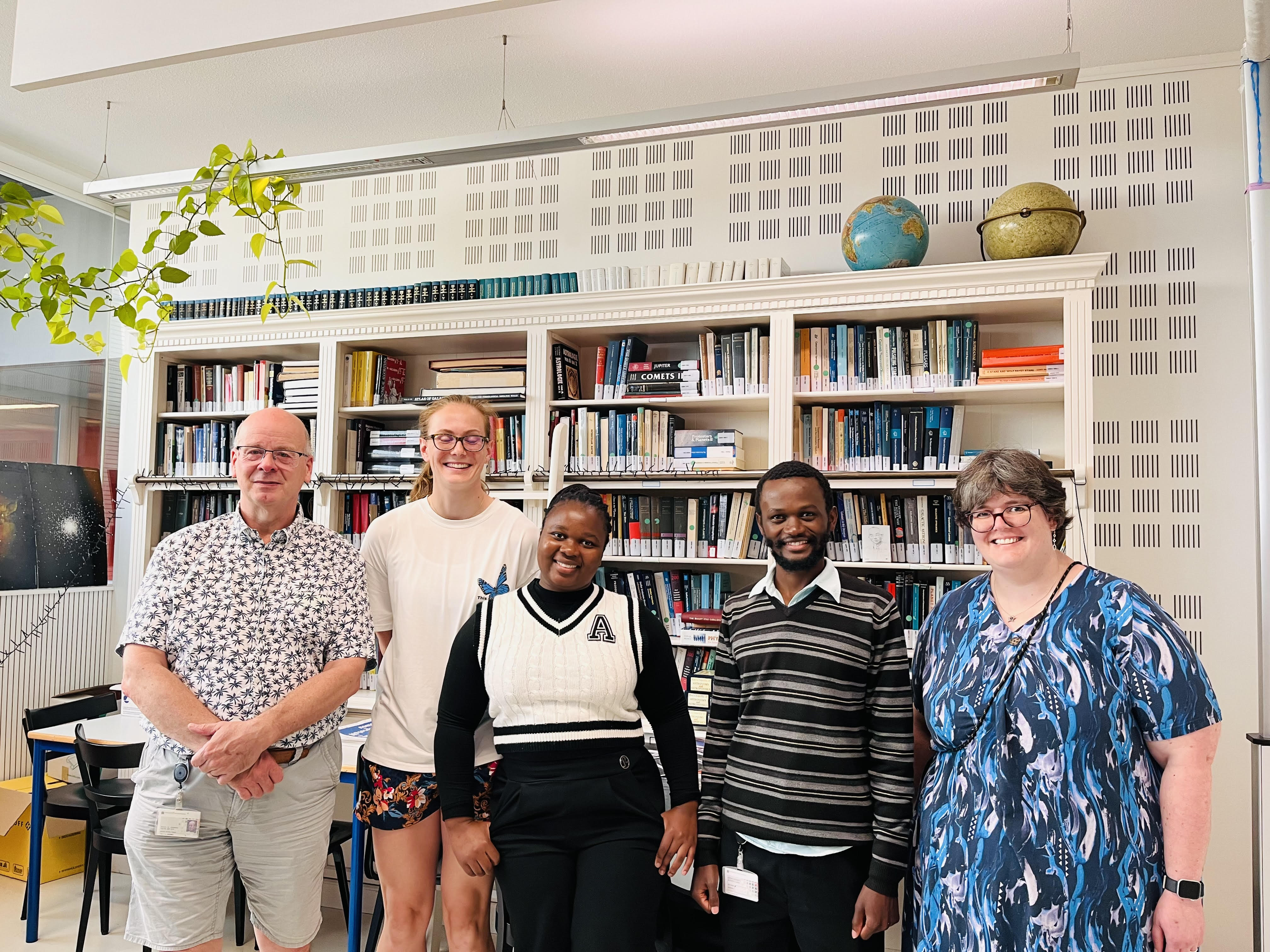 Apart from my specific research project, I got an opportunity to join the API Transient research group and attend weekly meeting discussions which I will continue to attend even after the end of the ASPIRE program. Our weekly lectures and workshops played a unique role in blending and broadening our knowledge as they cross-cut all fields of astronomy and astrophysics including radio transients, history of stronomy, science, instrumentation, current telescope developments, simulation and modeling, computational techniques and basics in software development, exoplanets and first radio bursts. Those workshops enlightened me on scientific integrity, CV development and received experiences in astronomy and research from the current group in API PhD positions and API staff in general more so during coffee time and lunch.
Apart from my specific research project, I got an opportunity to join the API Transient research group and attend weekly meeting discussions which I will continue to attend even after the end of the ASPIRE program. Our weekly lectures and workshops played a unique role in blending and broadening our knowledge as they cross-cut all fields of astronomy and astrophysics including radio transients, history of stronomy, science, instrumentation, current telescope developments, simulation and modeling, computational techniques and basics in software development, exoplanets and first radio bursts. Those workshops enlightened me on scientific integrity, CV development and received experiences in astronomy and research from the current group in API PhD positions and API staff in general more so during coffee time and lunch.
Outside API, I got an opportunity to attend a 2-days CORTEX science progress meeting at SURF in Utrecht where I attended talks on machine learning, big data, radio imaging, radio transients, gravitational waves and participation in hackathon sessions. Away from astronomy, I toured the beautiful city of Amsterdam and Utrecht, got boat and ferry riding. My participation in ASPIRE was full of blessings and benefits to me and my future career aspirations. Finally, I would like to thank the selection team as well as the funders of this program for granting me this golden opportunity to participate in ASPRE 2024.
Tshilengo Vhuthu Miranda

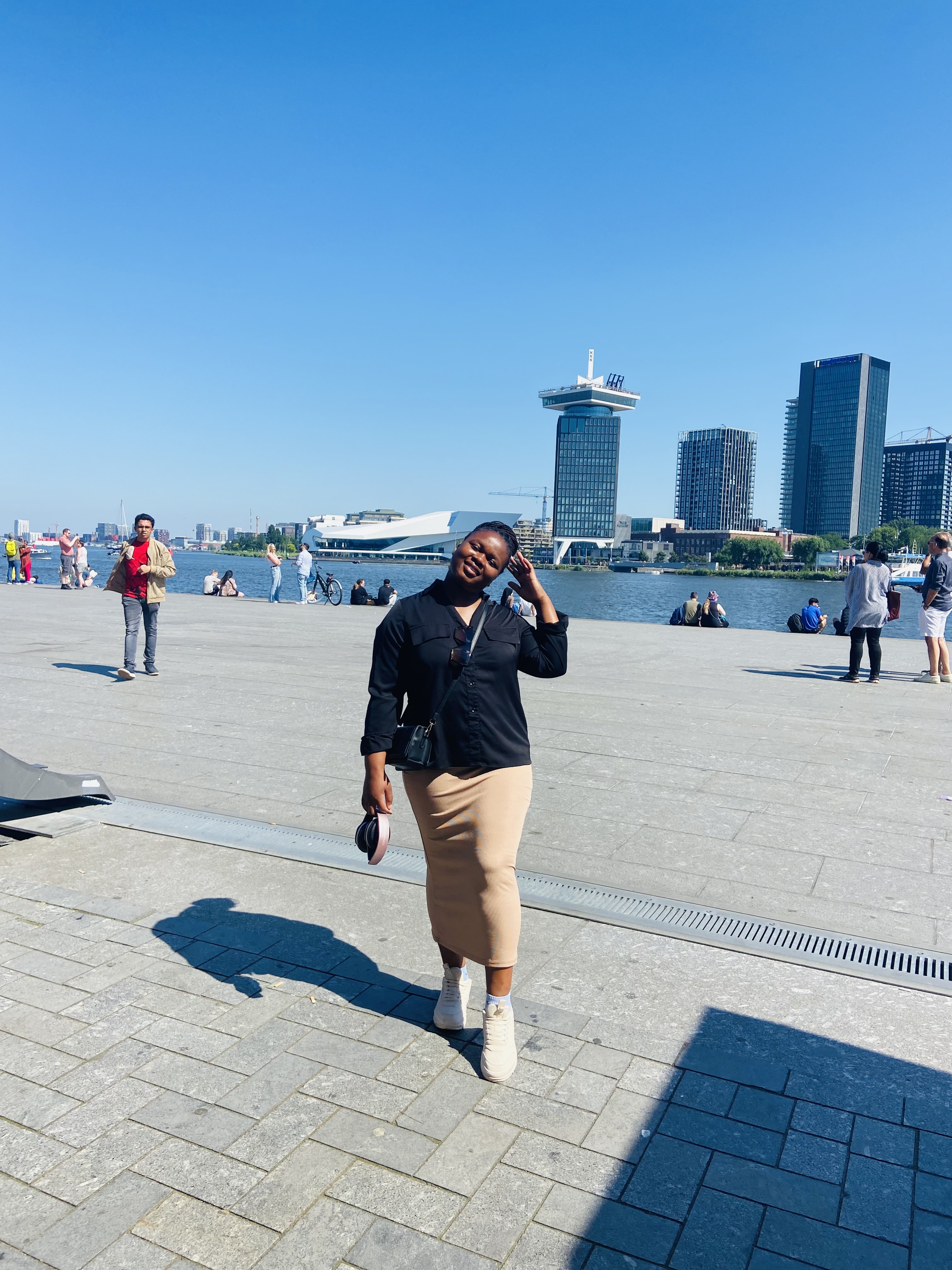 Hi, everyone. I am Tshilengo Vhuthu Miranda from South Africa, a master's student at the University of Venda. In 2019, I began my career as an astronomer when I attended the National Astrophysics and Space Science Programme—Northwest University (NASSP-NWU) winter school. This opens an opportunity for me, inspiring me to learn more about Astronomy. South Africa is one of the countries doing amazing scientific research in Astronomy. At my institution, there is no Department of Astronomy, so I did my Bachelor of Science in Mathematics and Physics they pursued my postgraduate studies in Physics that’s where I got an opportunity to do a project In Astronomy more specifically in Radio Astronomy Supervised by Patrick Woudt (University of Cape Town) and Eric Maluta (University of Venda).
Hi, everyone. I am Tshilengo Vhuthu Miranda from South Africa, a master's student at the University of Venda. In 2019, I began my career as an astronomer when I attended the National Astrophysics and Space Science Programme—Northwest University (NASSP-NWU) winter school. This opens an opportunity for me, inspiring me to learn more about Astronomy. South Africa is one of the countries doing amazing scientific research in Astronomy. At my institution, there is no Department of Astronomy, so I did my Bachelor of Science in Mathematics and Physics they pursued my postgraduate studies in Physics that’s where I got an opportunity to do a project In Astronomy more specifically in Radio Astronomy Supervised by Patrick Woudt (University of Cape Town) and Eric Maluta (University of Venda).
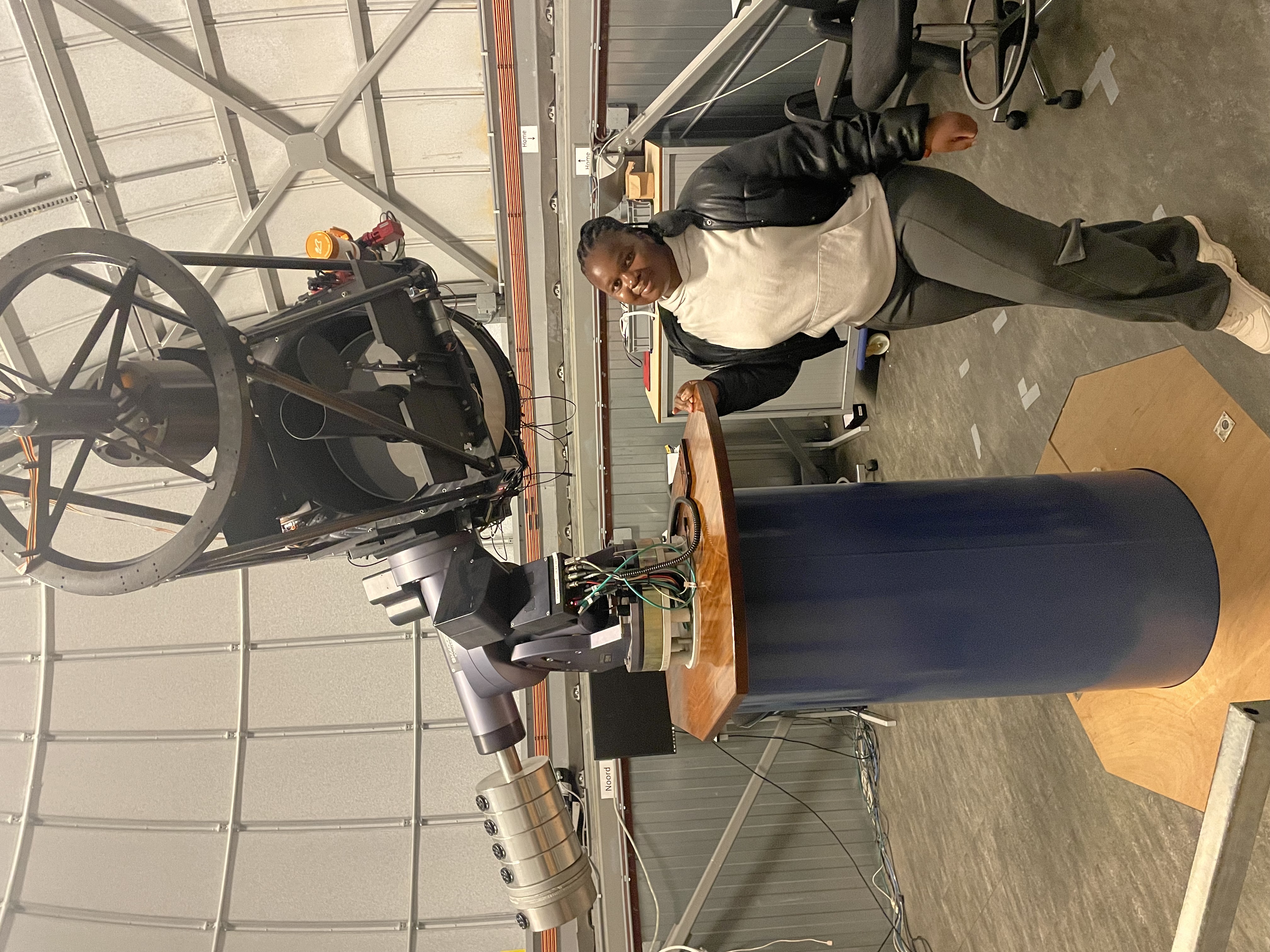
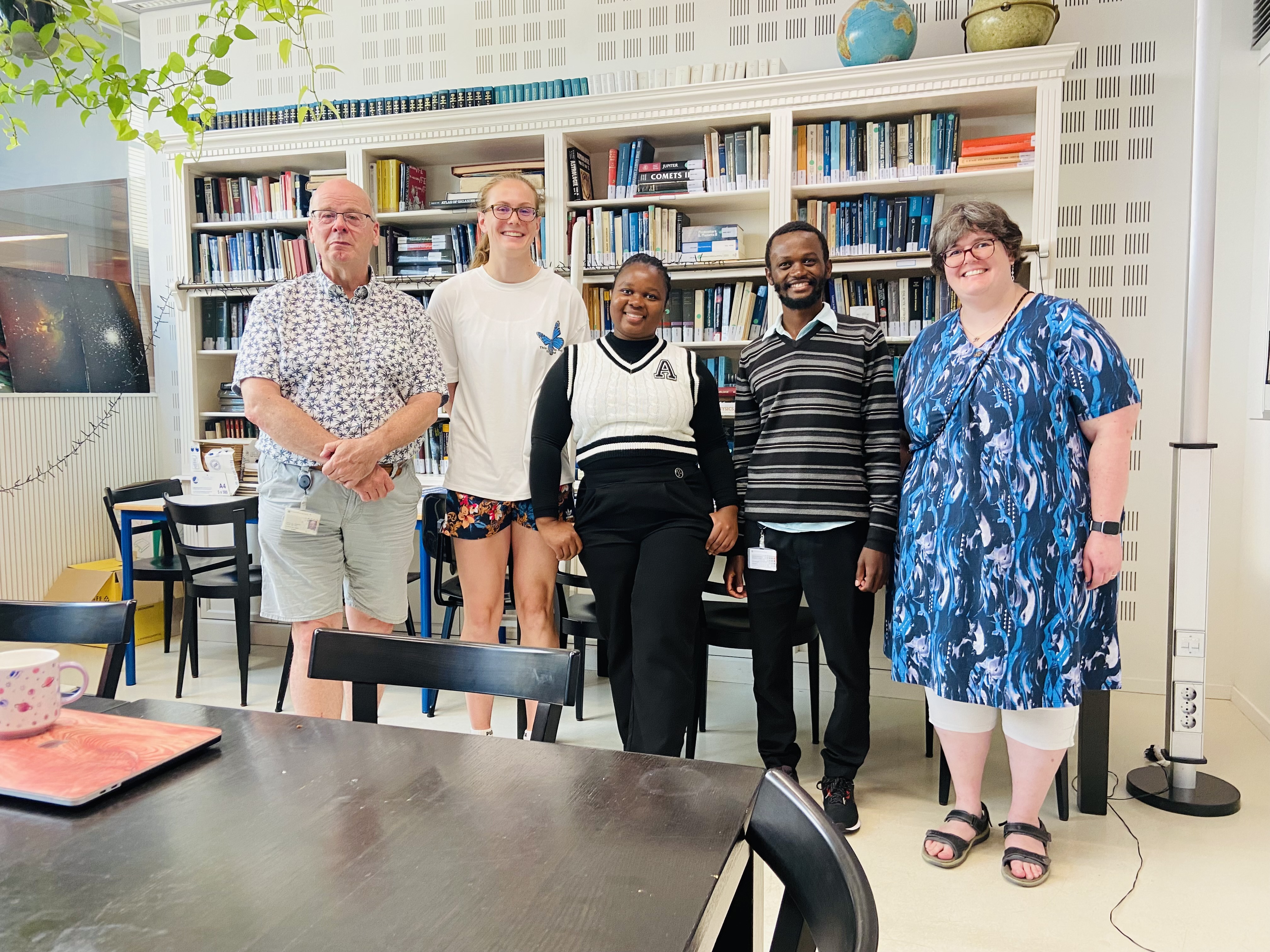 I consider ASPIRE to be the perfect experience having the opportunity to interact with knowledgeable professionals, being in one of the greatest institutions in the world. Antonia Rowlinson, Ralph Wijers, and Iris de Ruiter were my advisors working on Hunting for Transient Sources in Radio Images, this one was one of my biggest dreams come true I was so happy because it aligned with my master's project, I got a chance to learn new skills, methods and understanding more about Radio transients and able to interact with experts in the field. Being in academia and around scientists was ideal for me when it came to discussing science. Every week, I learn something new from the discussions in my amazing research group.
I consider ASPIRE to be the perfect experience having the opportunity to interact with knowledgeable professionals, being in one of the greatest institutions in the world. Antonia Rowlinson, Ralph Wijers, and Iris de Ruiter were my advisors working on Hunting for Transient Sources in Radio Images, this one was one of my biggest dreams come true I was so happy because it aligned with my master's project, I got a chance to learn new skills, methods and understanding more about Radio transients and able to interact with experts in the field. Being in academia and around scientists was ideal for me when it came to discussing science. Every week, I learn something new from the discussions in my amazing research group.
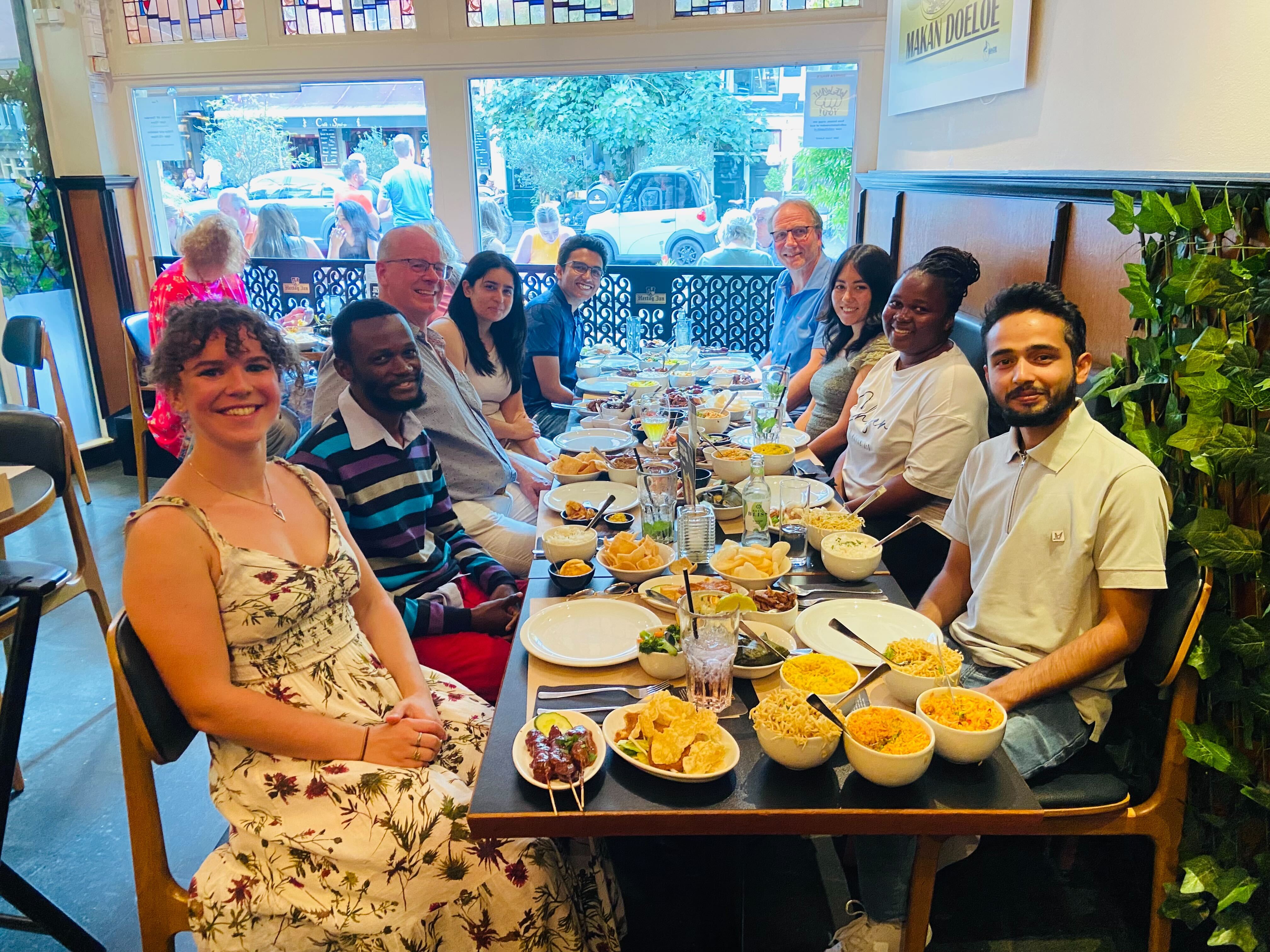 The fact that API is a very interactive institution is among its best features. There are set dates and times for some fantastic research talks. Every Tuesday from 10 to 12 am there is a workshop/lecture covering various scientific subjects. Their weekly ritual of gathering for a "good coffee" on Thursdays at 11 a.m. to socialize and have a nice conversation over coffee is another thing that impresses me about them.
The fact that API is a very interactive institution is among its best features. There are set dates and times for some fantastic research talks. Every Tuesday from 10 to 12 am there is a workshop/lecture covering various scientific subjects. Their weekly ritual of gathering for a "good coffee" on Thursdays at 11 a.m. to socialize and have a nice conversation over coffee is another thing that impresses me about them.
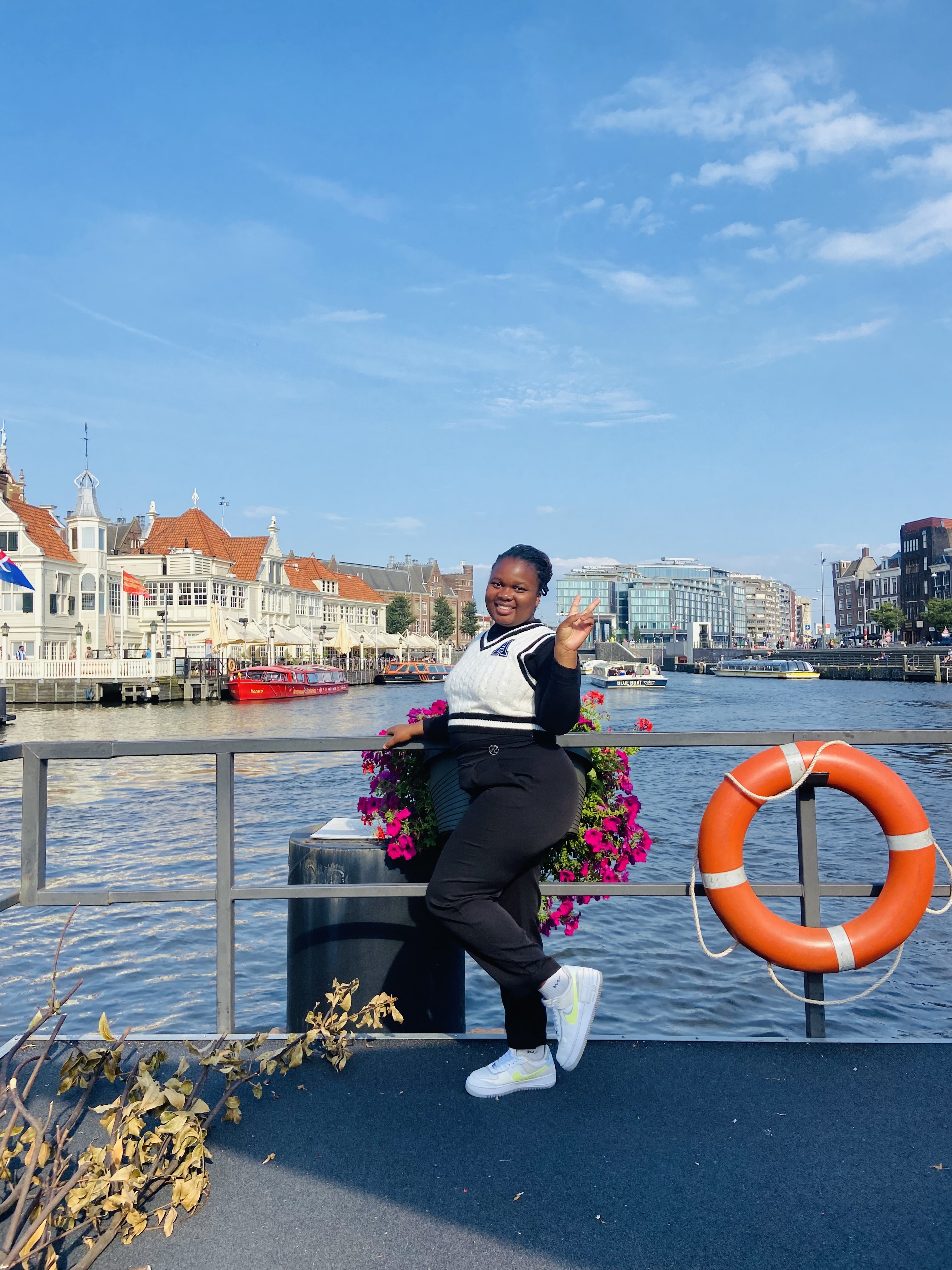
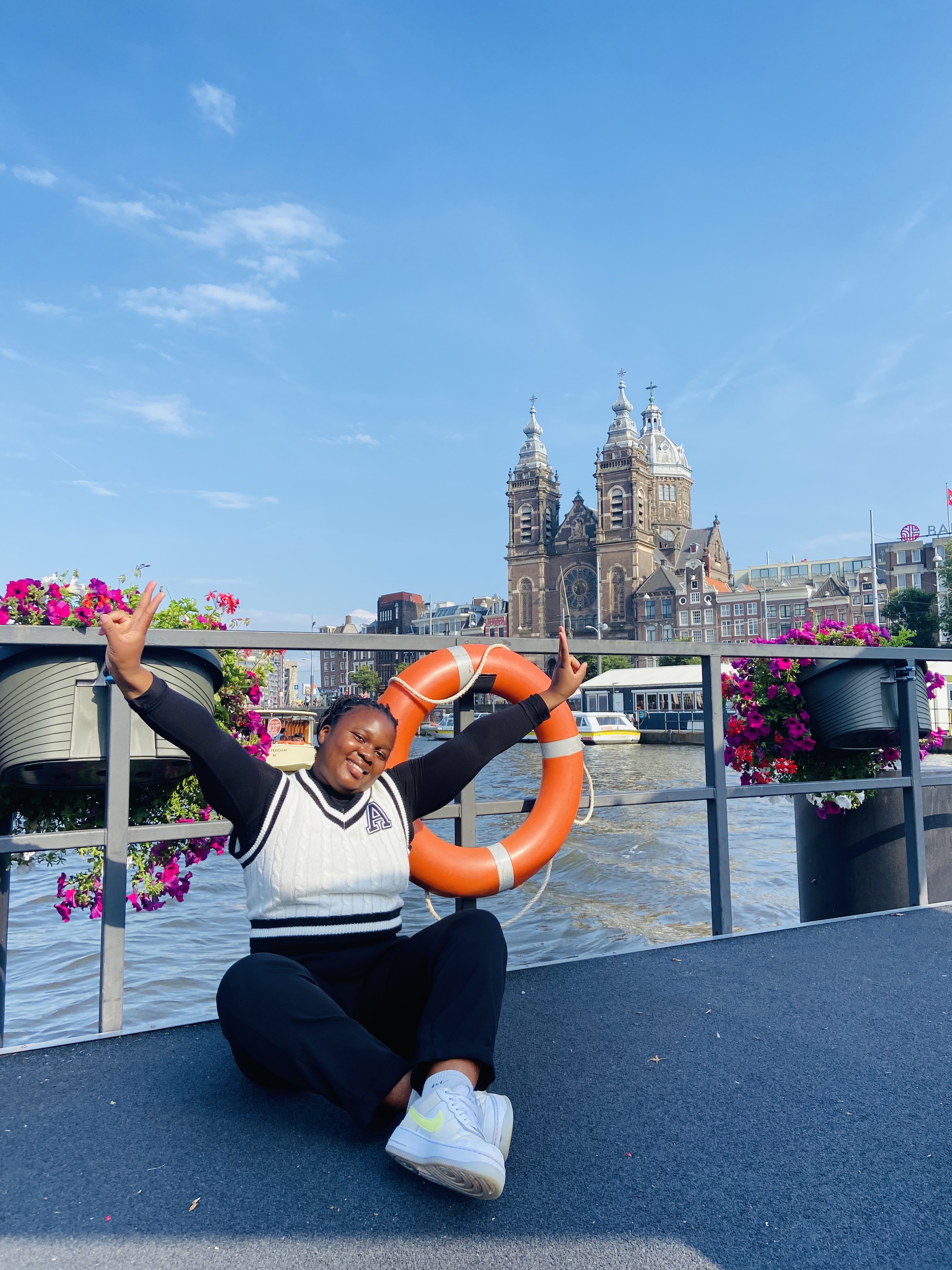 Oohh wow! What a city, Amsterdam is known for its beautiful canals, which flow through districts with a rich history and produce breathtaking views around every corner. With cyclists lining the streets and adding to the lively atmosphere, the city's bike culture is a major attraction. Amsterdam's architecture, which combines modern and charming 17th-century structures, is equally stunning. All of this comes together to create Amsterdam, a wonderful city where culture and beauty coexist together. It was amazing to know all the wonderful museums, I also did a boat cruising around the canals. Taking a walk around the park and attending some concerts. I do enjoy the beauty of Amsterdam, without a doubt, this summer has been one of the best of my life.
Oohh wow! What a city, Amsterdam is known for its beautiful canals, which flow through districts with a rich history and produce breathtaking views around every corner. With cyclists lining the streets and adding to the lively atmosphere, the city's bike culture is a major attraction. Amsterdam's architecture, which combines modern and charming 17th-century structures, is equally stunning. All of this comes together to create Amsterdam, a wonderful city where culture and beauty coexist together. It was amazing to know all the wonderful museums, I also did a boat cruising around the canals. Taking a walk around the park and attending some concerts. I do enjoy the beauty of Amsterdam, without a doubt, this summer has been one of the best of my life.
Magdalena Andrea Vilaxa Campos
 Hi! My name is Magdalena Andrea Vilaxa Campos, I was born and raised in Iquique, in the north of
Chile, and I am currently finishing my Master’s degree in Astronomy at Universidad de
Concepción, Concepción, Chile, located about a whole Pluto’s diameter to the south of my
hometown.
Hi! My name is Magdalena Andrea Vilaxa Campos, I was born and raised in Iquique, in the north of
Chile, and I am currently finishing my Master’s degree in Astronomy at Universidad de
Concepción, Concepción, Chile, located about a whole Pluto’s diameter to the south of my
hometown.
Chile, aside from being a very long country, is very well known in the world of astronomy for its clear skies and optimal conditions for observing in the beautiful and vast Atacama desert. I, however, decided to waste all of that and took interest in theoretical astronomy and numerical solutions. Many years ago, when I first applied to the Astronomy bachelor program, I did so without much thought, I knew I liked science, specifically physics and chemistry and I also really enjoyed math so astronomy seemed like a good fit, but what I didn’t predict is how much fun I would have programming. What commonly turned people away from pursuing astronomy became my favorite part of it. Later, when I joined the master’s program my project started as an attempt to model mass transfer in a binary using SPH simulations but encountered countless obstacles, from lack of proper equipment to the rebellious nature of SPH, that led me to shift the focus to an analytical approach of the problem. This made the chance to work on the ASPIRE project I applied to much more exciting.
During the 6 weeks of the program I worked on the project titled “Modeling Mass Transfer Between Stars” under the supervision of Dr. Silvia Toonen, MSc Adam Parkosidis and MSc Caspar Bruenech. We aimed to model a binary star, using SPH simulations, where the donor star is not only overfilling its Roche lobe but is also spinning, allowing us to see the changes in the accretion event for a sub-synchronous, synchronous and super-synchronous (or pseudo-synchronous at periastron in the case of eccentric orbits) regime. This project allowed me to somewhat revisit the original idea for my master’s thesis project, now with the help and advice of researchers with experience in the field and knowledge on the tools needed to pursue this task.
If I said everything went smoothly I would be lying. I had the chance to realize what I had done wrong in my first attempt but I also realized some issues with these simulations are… unexpected? and harder to figure out and fix. Anyway, I learnt a lot about simulations, visualizations and general programming. In addition, thanks to Evert’s workshop I can now call myself a Git expert.
I often doubt myself regarding my social skills and academic performance, but everyone at API was so welcoming and encouraging that even with my everyday struggles, adapting felt easier than expected. A work environment where people take time to share with each other, between faculty members and students, was something new to me. I really enjoyed having a scheduled break every morning to breath a little and prevent overworking myself. I really liked having free coffee too...
Lastly, partaking in the ASPIRE program allowed me to explore the beautiful city of Amsterdam (and I also went to Leiden once!). The botanical garden and many parks were nice spots to relax and paint whenever I wanted to take my mind off of things. I am very grateful to everyone I met, from the other students of the program, to my supervisors, to faculty and students at API and, of course, to Mai and Dianthe who worked hard to prepare everything for our arrival.
Bivu Wagle
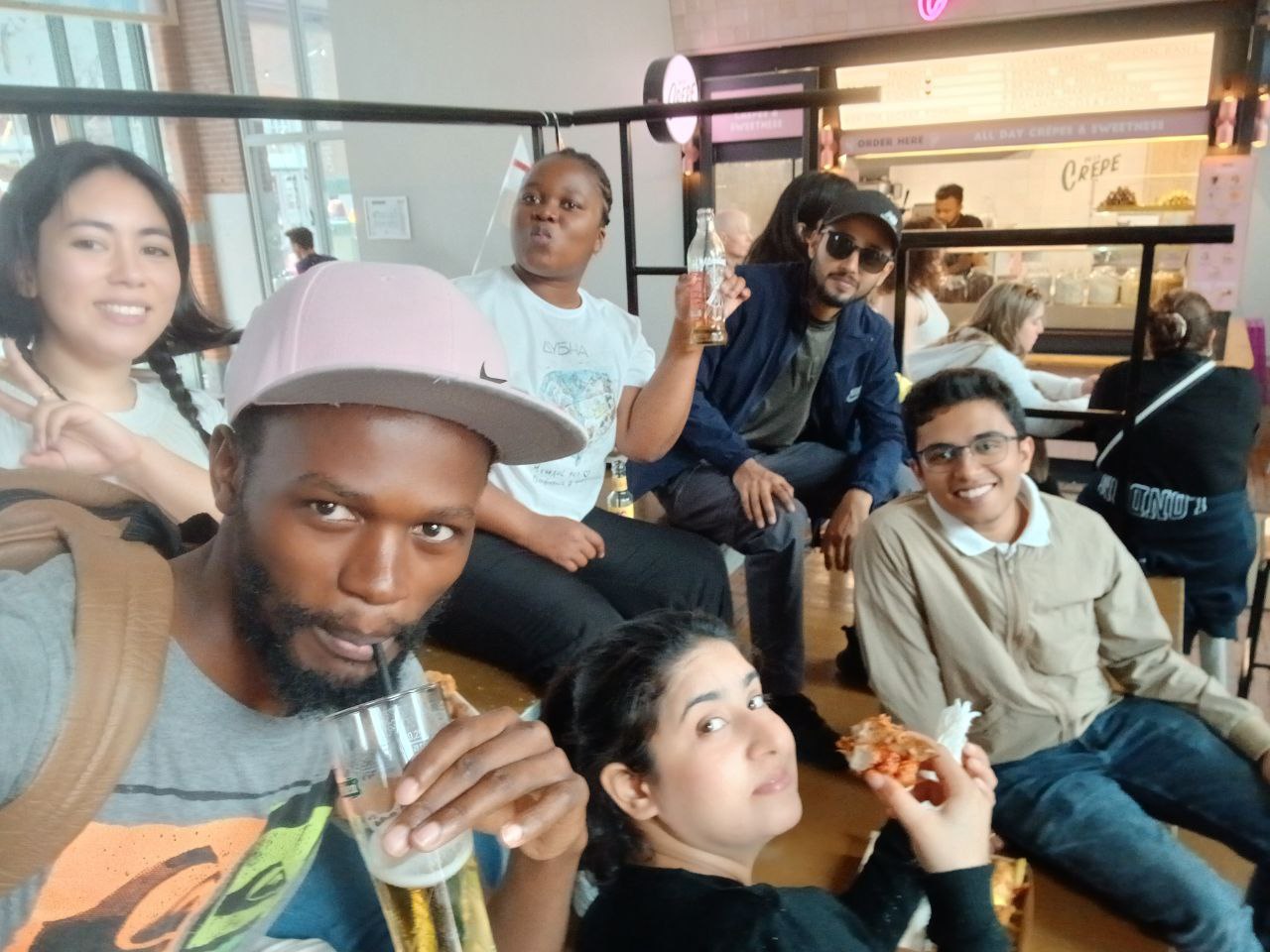 Namaste, fellow astrophysics enthusiast!
Namaste, fellow astrophysics enthusiast!
I am Bivu Wagle from Nepal, a nation blended with unique culture and nature's wonders. We host some of the highest peaks in the world including Mt. Everest, lots of beautiful lakes, and green hills. If you are a nature-loving person, Nepal could be the best destination for you to visit. I am a physics graduate from Tribhuvan University and am currently studying MSc physics at Kathmandu University. I have always been fascinated by the beauty of the cosmos since my childhood. Unfortunately, the lack of formal courses in astronomy and astrophysics in Nepal limited my academic pursuit in these areas. However, the ASPIRE came as a precious gift in my educational journey and career in astrophysics.
As an ASPIRE student, I spent the best days of my life for 6 weeks in Amsterdam. Visiting different museums and exploring this beautiful cultural city was fun. Being at API I got to know, how much people are devoted to science, and what kind of work ethic and passion one should possess. Professors and seniors at API were incredibly friendly and kind. I was amazed by their humility. I am very thankful to ASPIRE that I got friends from all around the globe and mentors for my lifetime.
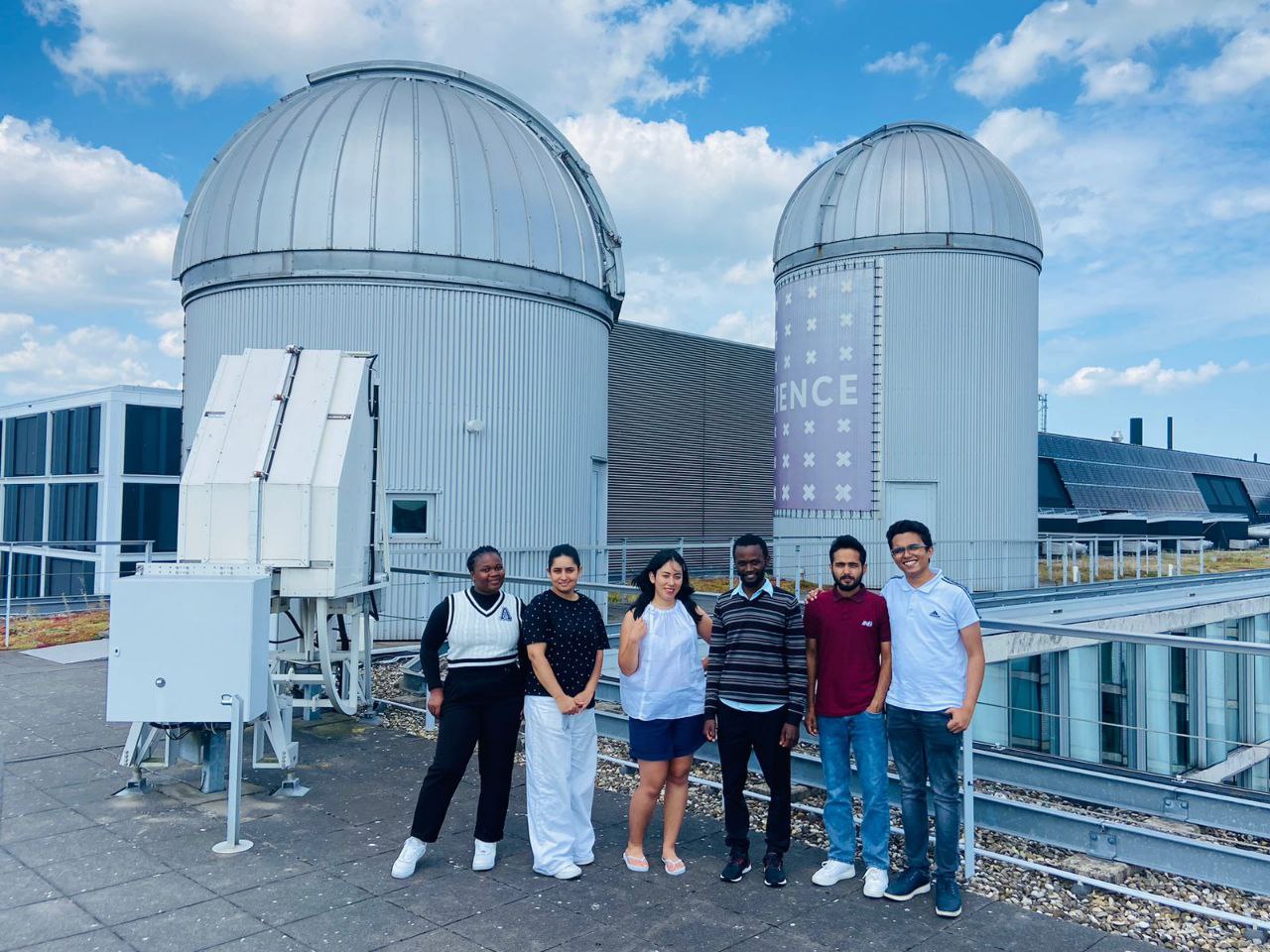 This summer, I had the incredible opportunity to work alongside brilliant minds like Yves Kini and Professor Anna Watts, who are among the kindest, passionate people I have ever met. Despite my limited background in the field, Yves used to explain those complex concepts to me in the simplest way possible. I am very thankful to him. My project, titled “Sizing Up Neutron Stars” focused on pulse profile modeling of thermonuclear burst oscillations. Our main goal was to see if the presence of a hot spot during a burst can bias X-ray burst spectroscopy results. The ASPIRE program holds a special place in my heart, as it provided me with my very first experience in real astrophysical research. The workshops throughout the program were immensely helpful, and the presentation of participants in the final week was really exciting. ASPIRE has truly enhanced my curiosity in the field and has motivated me to do science for my lifetime.
This summer, I had the incredible opportunity to work alongside brilliant minds like Yves Kini and Professor Anna Watts, who are among the kindest, passionate people I have ever met. Despite my limited background in the field, Yves used to explain those complex concepts to me in the simplest way possible. I am very thankful to him. My project, titled “Sizing Up Neutron Stars” focused on pulse profile modeling of thermonuclear burst oscillations. Our main goal was to see if the presence of a hot spot during a burst can bias X-ray burst spectroscopy results. The ASPIRE program holds a special place in my heart, as it provided me with my very first experience in real astrophysical research. The workshops throughout the program were immensely helpful, and the presentation of participants in the final week was really exciting. ASPIRE has truly enhanced my curiosity in the field and has motivated me to do science for my lifetime.
Without a doubt, those six weeks in Amsterdam were the best days of my life. At API, I got the opportunity to be surrounded by passionate astrophysicists, hearing their stories and learning about their work was truly amazing. I am deeply grateful to the organizers of ASPIRE, my supervisors Yves and Anna, for believing in my potential, and my fellow participants for their companionship. In total ASPIRE was grand as cosmos to me.
Blog ASPIRE 2021
Read all about the how students experienced the 2021 online ASPIRE programme
Grace Katusiime
 Hi, I am Grace, from Uganda. Uganda is a natural beauty, with
abundance of gifts bestowed to her: the snowcapped Rwenzori
mountains, named one of the best hikes in the world by National
Geographic; mountain Elgon, with the largest volcanic Caldera in
the world; the mighty river, River Nile, and Africa's largest lake,
Lake Victoria.
Hi, I am Grace, from Uganda. Uganda is a natural beauty, with
abundance of gifts bestowed to her: the snowcapped Rwenzori
mountains, named one of the best hikes in the world by National
Geographic; mountain Elgon, with the largest volcanic Caldera in
the world; the mighty river, River Nile, and Africa's largest lake,
Lake Victoria.
 I am a master student at Mbarara University of Science and Technology.
I hold a Bachelor's degree of Science with Eduction (physics/mathematics)
of Mbarara University of Science and Technology. I developed an
interest in the field of Astronomy at my undergraduate program as course
units like introduction to Astrophysics were being taught. I found the
universe and space travel being fascinating objects, and I started yearning for
more knowledge about stars specifically. In my third year at undergraduate
program, I did a research project in stellar physics. My project narrowed
down to asteroseismology of two evolved solar-like stars: KIC 005023953
and KIC 005111949. At master's level, I continued with stellar physics where
I worked on determination of atmospheric parameters and chemical abundances
of B-A type stars.
I am a master student at Mbarara University of Science and Technology.
I hold a Bachelor's degree of Science with Eduction (physics/mathematics)
of Mbarara University of Science and Technology. I developed an
interest in the field of Astronomy at my undergraduate program as course
units like introduction to Astrophysics were being taught. I found the
universe and space travel being fascinating objects, and I started yearning for
more knowledge about stars specifically. In my third year at undergraduate
program, I did a research project in stellar physics. My project narrowed
down to asteroseismology of two evolved solar-like stars: KIC 005023953
and KIC 005111949. At master's level, I continued with stellar physics where
I worked on determination of atmospheric parameters and chemical abundances
of B-A type stars.
 After two months of being part and enjoying the academic life at Anton Pannekoek Institute (API),
I can not imagine how blessed I have been being an ASPIRE student. Other than all the interesting
research going on at API, I really loved the exceptional character of the people, the special love
they express for the novices, and the zeal of showing these new folks that the sky is no longer
the limit and it is possible to shoot it. I believe the greatest challenge you can give to a person
is showing them that they can do it. The API's hospitality made my two months of hard work
appear like as if it was for two weeks! API is a great example of how we can come from di erent
backgrounds, experiences and elds of expertise and work in unity to produce undoubtable results.
I really enjoyed attending colloquiums, group meetings and seminars, where I got a privilege to
listen to insightful discussions. Truthfully speaking, the API will always be my big science family
away from home. More so, the ASPIRE program gave me a chance to connect and bond with other
astronomers as well as the fellow ASPIRE/LEAPS students all over the world.
After two months of being part and enjoying the academic life at Anton Pannekoek Institute (API),
I can not imagine how blessed I have been being an ASPIRE student. Other than all the interesting
research going on at API, I really loved the exceptional character of the people, the special love
they express for the novices, and the zeal of showing these new folks that the sky is no longer
the limit and it is possible to shoot it. I believe the greatest challenge you can give to a person
is showing them that they can do it. The API's hospitality made my two months of hard work
appear like as if it was for two weeks! API is a great example of how we can come from di erent
backgrounds, experiences and elds of expertise and work in unity to produce undoubtable results.
I really enjoyed attending colloquiums, group meetings and seminars, where I got a privilege to
listen to insightful discussions. Truthfully speaking, the API will always be my big science family
away from home. More so, the ASPIRE program gave me a chance to connect and bond with other
astronomers as well as the fellow ASPIRE/LEAPS students all over the world.
 During the two months, I got an opportunity to interact with the Jetset group members
under the leadership of Prof. Sera Marko . What an amazing group Jetset is! In a special
way, I appreciate my wonderful supervisors: Prof. Sera Marko , Dr. Matteo Lucchini
and Dimitris Kantzas for their distinguishable e orts towards my project.
During the two months, I got an opportunity to interact with the Jetset group members
under the leadership of Prof. Sera Marko . What an amazing group Jetset is! In a special
way, I appreciate my wonderful supervisors: Prof. Sera Marko , Dr. Matteo Lucchini
and Dimitris Kantzas for their distinguishable e orts towards my project.
 I worked on understanding Jet emission of stellar-Mass black holes.
Black holes were relatively a new field to me but my supervisors
tried to break down the content in a simplicity way possible. This
made me understand and love the field more, and I hope to continue
working on Black holes for my PhD. I learnt alot about Black
holes, launching of jets, jet emission and re
ection as a proxy which
Sera came up with in 2004 to differentiate between synchrotron
emission (jet dominated emission) and inverse compton scattering
(corona/jet base dominated emission).
I worked on understanding Jet emission of stellar-Mass black holes.
Black holes were relatively a new field to me but my supervisors
tried to break down the content in a simplicity way possible. This
made me understand and love the field more, and I hope to continue
working on Black holes for my PhD. I learnt alot about Black
holes, launching of jets, jet emission and re
ection as a proxy which
Sera came up with in 2004 to differentiate between synchrotron
emission (jet dominated emission) and inverse compton scattering
(corona/jet base dominated emission).
 I can really say that the eight week program was a great plus to my academic
life as an aspiring astronomer. I definately had one of the best summers of my life.
I learnt alot from my project, supervisors, and the API
community at large. Blessings to all!
I can really say that the eight week program was a great plus to my academic
life as an aspiring astronomer. I definately had one of the best summers of my life.
I learnt alot from my project, supervisors, and the API
community at large. Blessings to all!
Eraj Gulraiz
Hey everyone! I am Eraj Gulraiz from Pakistan, and this is my “stellar” ASPIRE 2021 experience.
Needless to say, a person who is passionate enough about astronomy would spend a whole summer on a project that helps him/her to get a little better understanding of the universe than he/ she had before. Same goes for me, I was among the 11 students to be selected for this remarkable experience that is going to be with us for the rest of our lives. Programs like ASPIRE make you believe that there are people in the world and academia trying to make it more tolerable and open to passionate and capable people, regardless of any bias e.g. ethnicity, country or religion.
I am a graduate in Physics with a masters in Computational Science, and in astronomy the most attractive area that compliments my aptitude and fascination is Computational Astronomy. In fact, I chose Physics with the aim of Astronomy in mind. To have a goal of becoming a researcher in Computational Astronomy, I require some significant research experience. With the competition and ongoing fast paced science there’s so much to learn and thrive for. I worked on the project “Cosmic Expansion History with Gravitational Waves Sources” with Suvodip Mukherjee. As amazing as the name sounds, the project was full of excitement and fresh research. I was working on gravitational waves for the first time, and with the news of the detection of the Neutron Star- Black Hole merger this year, I just couldn’t contain the excitement and I was thrilled to work even overtime. To be a part of this field is already a dream, and working on “ the song of the universe” was just a golden opportunity. Everything I worked on was new to me, and I can not give enough credit to my amazing supervisor to teach me so much in a short span of 2 months.
Although the program was remote due to the current COVID situation, API made me feel so connected to every one. Especially, meetings with the research group GRAPPA led by Samaya Nissanke, made us feel welcome, like we have been a part of it since the beginning. I really enjoyed the GRAPPA journal clubs, one of the many experiences that I never had before. There were also some informal sessions with the other candidates, and we sure had fun in Gathertown meetings too. We made friends rather quickly, and hope to cherish these connections for life. Not only the API students but also the supervisors were ready for any guidance you need, academic or general. All the seminars and workshops were very interactive and the opportunity to (virtually) meet amazing present day researchers that are working at the forefront of Astronomy is an opportunity I could’ve not experienced otherwise! It only makes me wonder if it was THIS exciting remotely, I can only imagine what it would’ve been like in person. ASPIRE gave me an opportunity to meet the people I "aspire" to be, and I very much hope to meet them someday in person as well.
I will end by saying that I am glad that somewhere in a galaxy far far away, some blackholes merged and we were able to hear them. Astronomy excites me to my core, the magnificent and the oldest of science, that just tells us how small we are in comparison to scale, but how significant it is that we were able to come this far to try and understand the Universe. If I sum up my ASPIRE experience in one word, I’d say it was, ASTRONOMICAL! :)
Devika P B
Hey folks, This is Devika P B here. I am a fifth-year IMSc Physics Student from the Central University of Tamil Nadu, India. I belong to Kerala which is a beautiful state in the landscape of India famous for its placid backwaters, lush greenery, picturesque hill towns, and beautiful beaches. My keen interest in Astronomy and Astrophysics took its roots from watching popular science programs like “Cosmos: A Spacetime Odyssey” and “Into the Universe with Stephen Hawking”. Soon enough I got engulfed in the world of Astrophysics literature. A Brief History of Time, The Theory of Everything, Mapping the heavens, The 4 Percent Universe, The First Three Minutes, and Black Holes and Time Warps are some of the books that shaped my knowledge of the cosmos. With time I became more and more curious about the universe and I strongly wanted to pursue a research career in this field. Unfortunately, there are no colleges in India that offer a BSc in Astrophysics. But there are some premier institutes for MSc and Ph.D. in this field. Hence I joined a five-year integrated Physics course that could strengthen my base for pursuing a Ph.D. in Astrophysics. Being an Aspire intern is the best thing that has ever happened to me so far. Even with the restrictions due to the covid pandemic, they delivered me the best research experience.
I worked with Dr. Lorenzo Pino and Prof. Jean-Michel D sert on the project “Modelling the upper atmospheres of strongly irradiated exoplanets”. This field was completely new and exciting for me. My work was motivated by the two apparently discrepant (Na doublet) observations of the exoplanet HD209458b at high and medium-low resolution. One of the key challenges I am trying to address is to disentangle a hydrostatic signature and a hydrodynamic signature in the transmission spectrum and to try and understand where the escaping layer begins.
The scientific discussions with my supervisor were one of the things that I enjoyed the most in the entire program. They are the most humble and encouraging souls I have ever seen in my life! The weekly meetings with Jean-Michel and the exoplanet team urged me to be more confident in myself and my doubts were thoroughly appreciated. These meetings not only helped me to understand their ongoing research but also gave insight into their thinking process and how different perspectives and opinions play a major role in research. The weekly Exoplanet and Disks Meeting(EDM) was another platform where all the exoplanet and disks enthusiasts gathered to discuss interesting papers and their ongoing works. The organizers were truly outstanding and inclusive of the Aspire students working in these fields.
I indeed missed out on being there in person but they truly structured this online event in such a way that we always felt connected and got easily blended in their vibrant scientific community virtually! The seminars and workshops were so interactive and informative. In the info coffee, we were able to meet with the entire API family where they chatted about daily life and exciting updates in their respective fields. Another highlight of the program was the “gather town” which was a fun platform where we Aspire students and other APIs got together to narrow down our distances and simply chat away! The colloquiums and Grappa meetings are guaranteed to stimulate your brain cells. The BSc and MSc symposiums were thoroughly enjoyable as well, where the students of API presented their thesis projects. In all these programs we were always welcome to ask doubts and quench our curiosities.
I did face some challenges during the project since I was comparatively new to coding. My only prior experience was working on a project on meteors in my second year which mostly involved SKiYMET meteor radar data analysis. Dr. Lorenzo always trusted me and encouraged me in the best possible ways. He was a true mentor who believed in my potential and supported me through all the ups and downs. Prof. Jean-Michel also taught me valuable lessons, one of which that I truly treasure is to always find a balance between theory and coding instead of getting completely lost in one. I believe that working in a pressure-free environment yields more promising results and that’s exactly what I accomplished working with my team. Last but not least my fellow Aspire mates are brilliant individuals and I got to learn a lot from their wonderful personalities. Some of them inspired me while some always reassured me whenever my mind was troubled since working from home has its ups and downs. They were always ready to help whenever I needed it.
Aspire is that program where you not only grow as a researcher but also as an individual. Sending lots of love to all the organizers and people of API!!!
Ny Avo Rakotondrainibe
Hi everyone! My name is Ny Avo Rakotondrainibe and I am from Antananarivo, Madagascar. Yes, even if I am from a country where Science and Astronomy in particular are not a priority, I still have chosen to join this family. Since my childhood, I have been amazed by all the colorful and amazing pictures from all the science tv documentaries and magazines. So, I decided to enter the Master of Science in Astronomy and Astrophysics after a Bachelor of Science in Physics and Applications in the University of Antananarivo; all that with the hope of being a cosmologist or a specialist in dying giant stars.
Why did I apply for the ASPIRE? The answer: Cosmology. Actually, I was finishing my Master Degree during the whole ASPIRE project. As my Master project was a cosmology subject, I also wanted to see how we really do Cosmology in the real world of astronomy. So, my participation in the ASPIRE project, with the wonderful Dr. Mukherjee, enlightened me and brought me again to those times where I was amazed by new things, but this time, by Cosmology. Also, as we do not have a future in the country for a field like this, it would really help me for my future applications and indeed it did.
For me, being part of ASPIRE was not only about plotting some figures, reading papers or Pythoning, it literally made me an astronomer for a span of eight weeks. It gave me so many opportunities, like friends from all around the world, attending lectures from professors I thought I would be able to see only on Wikipedia, seeing the cutting edge of methods in astronomy, and so much more.
On the other hand, for the technical part, I was on the “Measuring cosmic expansion history with gravitational wave sources” project with another cheerful student, Eraj, shoutout to her. We were supervised by Dr. Suvodip Mukherjee. So, we have first generated a population of gravitational waves sources. Then, we have used those black hole-neutron star coalescences to estimate the Hubble parameter. From this project, we were introduced to the very famous Bilby and emcee codes in the field of gravitational wave astronomy. Also, a paper will be in preparation as an extension of this project in particular.
So sad that we were not able to be in API physically, but it was still an amazing experience. We were all greatly welcomed in the slack channel of API so it was nice still. This project really helped me, not only on the astronomy part but on the human part. I have really seen the fact that this field is a team work, one cannot resolve a problem by self.
To finish, I would like to thank the entire staff of API, the ASPIRE organizers, my supervisor and all these ASPIRE interns for making these two months happen and go amazingly!
Rua Sulaiman
“Too fast!” is how I would describe my journey as an ASPIRE student through these extraordinary eight weeks. I still remember the day when I got my final acceptance to the program from my amazing supervisor, Dr. Christian Ginski. Full of joy and excitement with overwhelming fear, I prepared myself to join the first meeting of the protoplanetary disks research group that I would be part of. I was scared of being judged, as a Hijabi Middle Eastern girl, or considered as a stranger or not belonging. I entered the first meeting and started exploring everyone’s faces. Very quickly, a network of branching thoughts and interpretations loaded with unjustified exaggeration started growing to fill up my mind completely. Suddenly, I was cut by Kevin, the organizer of the group’s meetings, to hear him welcoming me and starting to introduce himself. Immediately, I introduced myself. I trembled but was able to say a couple of comprehensible words about me. Then, everyone started introducing him/herself.
Never judging but always welcoming my supervisor Christian used to be, listening to anything I would suggest or ask about, encouraging me more to read, think, and ask more questions. I enjoyed every single meeting I had with him. The fears that I started with of being “not belonging” began to fade away as all the people in the group were always very helpful and kind; Rico, Ryo, Lucas, and Carsten all never hesitated to help me with anything asked about. However, one of the things that I had a hard time getting used to is calling people with their first names with no titles! All the people that I have mentioned are either Ph.D. students, postdocs, or Professors. For example, I had a difficult time calling Professor Carsten by his first name as he was the leading professor in our group and the president of the Anton Pannekoek institute. So, I always avoided calling him explicitly and never had to say his name without a title :D This great environment has helped me to delve deeper into my research about a protoplanetary disk around a pre-main star that is called V351 Orionis.
My project was in observational Astronomy. The first time I saw a protoplanetary disk was when I saw the image of the PPdisk around V351 Ori! I was so excited! I am looking at a real object in outer space, and I am the first person to touch its new data! However, the shape of the disk was hard to comprehend at first sight, at least for a person like me who had zero expertise in this domain. As an expert observer, Christian started explaining things to me and walking me through all that I need to know step by step in a very organized and systematic way. I started by the data reduction of the images taken in the near-infrared. Then we moved to produce a model for the disk that is based on our interpretation of the disk's structure to see whether our model is capable of reproducing the real image of the disk. Consequently, the results were so promising!
The program has definitely exceeded my expectations! There was a vast number of events! The great mixture of talks, theses defenses, workshops, lectures, and seminars have opened the door for great opportunities to meet huge authorities and leading figures in Astronomy and Astrophysics. Contrary to my expectations, it was not as scary as it sounds to have a conversation with an authority in the field! Everyone was so humble and always had the ultimate goal of spreading deeper Physics understanding. One time Christian suggested a meeting with a scientist who is called Miriam to discuss few code-related things. We had a great conversation with Miriam as she was a very kind and amazing scientist. After a couple of days, while searching for some research papers, I got a paper "Discovery of a planetary-mass companion within the gap of the transition disk around PDS 70" that is lead by “Miriam Keppler”. In this paper lies one of the most important discoveries of recent years in the field of exoplanet research. along with different awards and prices, I was stunned when I knew that this is the same Miriam I had met a couple of days ago! I really admired the humble and great scientist she is and laughed at the simple and gullible me :D
All of this made the online barrier so negligible and unnoticeable that I never felt that it limited my communication with others. We had weekly social gatherings on “Gather town” where ASPIRE students used to meet and enjoy having informal conversations, playing games, and talking about anything we feel like sharing. We used to meet some API people who would drop by and have a friendly chat with them.
There is no exaggeration in saying that this was the greatest summer I ever had. Despite me having no expertise in the domain I was able to work through all the tasks and get good results. Without Christian’s great supervision, and the time he spent answering my questions and guiding me through, even if it meant taking extra time from his schedule, I would have not been able to get any results or enjoy this great experience. I would never forget the great people I have met here who always made me feel belonging, crossing the barriers of race, religion, and nationality. It was definitely an extraordinary experience that did not only add to my knowledge in Physics considerably, but also introduced me to a scientific environment of huge inclusion and acceptance where every idea and question has its own worth.
Blog ASPIRE 2019
Read all about the how students experienced the 2019 ASPIRE programme
Sara Zahoor
I am Sara Zahoor, a graduate student from National University of Science and Technology, Islamabad, Pakistan. In my country, people are doing some amazing scientific research but unfortunately when it comes to Astronomy, we do not have any technological facilities, especially for observations. So this field did not attain as much attention compared to other research areas. So for me, who grew up aspiring to become an "Astronomer" one day and whose only source of information was the internet, popular science books and documentaries - being an intern in ASPIRE program at API (Anton Pannekoek Institute at University of Amsterdam) is like having a dream come true.
 Last but not the least; "Cosmic Fingerprints" is the blog that drove me to purse my career as a scientist in this field. During my bachelors I did some theoretical research on Space Plasma but the drive for Astronomy and Astrophysics remained inside me. Later on, I was fortunate to be able to work with Dr. Chris Power from ICRAR, Australia on cosmological simulations and studied galaxy evolution. Since there is no one currently working in this field in Pakistan, so I had to work through the internet. As they say, learning by experience is better than just information and therefore ASPIRE is the perfect experience for me in this regard. I not only have the opportunity to work with brilliant professionals, but also get to work at one of the worlds best institutions.
Last but not the least; "Cosmic Fingerprints" is the blog that drove me to purse my career as a scientist in this field. During my bachelors I did some theoretical research on Space Plasma but the drive for Astronomy and Astrophysics remained inside me. Later on, I was fortunate to be able to work with Dr. Chris Power from ICRAR, Australia on cosmological simulations and studied galaxy evolution. Since there is no one currently working in this field in Pakistan, so I had to work through the internet. As they say, learning by experience is better than just information and therefore ASPIRE is the perfect experience for me in this regard. I not only have the opportunity to work with brilliant professionals, but also get to work at one of the worlds best institutions.
 Dr. Emily Petroff is my advisor here, who is known for her famous first real-time fast radio burst discovery. We are working on the detection of galactic RRATS (rapidly rotating radio transients), from the data of Parkes Telescope from Australia. RRATs are neutron stars but unlike Pulsars they are not periodic, in fact they are detected with single pulse searches. There are lots of tests on the signals that one has to go through before the pulse can be regarded as useful or just noise. This process gets even more challenging in the case of RRATs because their true nature is still unknown to astronomers and they are much less explored. All these factors makes this project even more exciting.
Dr. Emily Petroff is my advisor here, who is known for her famous first real-time fast radio burst discovery. We are working on the detection of galactic RRATS (rapidly rotating radio transients), from the data of Parkes Telescope from Australia. RRATs are neutron stars but unlike Pulsars they are not periodic, in fact they are detected with single pulse searches. There are lots of tests on the signals that one has to go through before the pulse can be regarded as useful or just noise. This process gets even more challenging in the case of RRATs because their true nature is still unknown to astronomers and they are much less explored. All these factors makes this project even more exciting.
 Every human being fantasizes something in their life, as for me being in academia and surrounded by scientists – talking about science is the one. I am a part of such an amazing research group and every week I learn something new from their discussion. It is a challenge for me to be able to reach to their intellectual level, and that is one of the many reasons that I choose to come here. Science is not just about reading and thinking, in fact it is more about communicating – being able to talk about your ideas and to discuss because this is how your knowledge evolves. At this stage I mostly listen and observe, how they take one plot or research paper – then openly discuss it. It made me realize how you can help and then can learn more at the same time. The Friday paper discussion session is particularly wonderful meeting to be at. The presenter chooses an interesting research paper, talk about the things he or she understands and then they all discuss together. Since they know that I am a novice so they encourage me to ask questions and give special attention to me. It not only gives me courage but also the sense that I am a part of their group now.
Every human being fantasizes something in their life, as for me being in academia and surrounded by scientists – talking about science is the one. I am a part of such an amazing research group and every week I learn something new from their discussion. It is a challenge for me to be able to reach to their intellectual level, and that is one of the many reasons that I choose to come here. Science is not just about reading and thinking, in fact it is more about communicating – being able to talk about your ideas and to discuss because this is how your knowledge evolves. At this stage I mostly listen and observe, how they take one plot or research paper – then openly discuss it. It made me realize how you can help and then can learn more at the same time. The Friday paper discussion session is particularly wonderful meeting to be at. The presenter chooses an interesting research paper, talk about the things he or she understands and then they all discuss together. Since they know that I am a novice so they encourage me to ask questions and give special attention to me. It not only gives me courage but also the sense that I am a part of their group now.
 One of the best things about API is that it is a very interactive institution. There are dates and times, always fixed, for some wonderful research talk (Colloquium), either it is from GRAPPA or API. You will always find enthusiastic master students, PhDs, postdocs and faculty member fully involved in these talks, ready to gain insight beyond their research areas. After all this, special ASPIRE talks from the API faculty is like having a cherry on the top.
I am also impressed from their tradition of getting together every Thursday morning at 11 am for the “Good coffee", just to hang out with their colleagues and share a pleasant chat over coffee.
Our first official dinner was at Pancake House, where we had traditional Dutch pancakes. We interns were also invited on the annual API outing. They arranged activities for all of us together, like beach cleaning, games (Expeditie Robinson) and also some tasty food - making us truly feel like a part of the API family.
One of the best things about API is that it is a very interactive institution. There are dates and times, always fixed, for some wonderful research talk (Colloquium), either it is from GRAPPA or API. You will always find enthusiastic master students, PhDs, postdocs and faculty member fully involved in these talks, ready to gain insight beyond their research areas. After all this, special ASPIRE talks from the API faculty is like having a cherry on the top.
I am also impressed from their tradition of getting together every Thursday morning at 11 am for the “Good coffee", just to hang out with their colleagues and share a pleasant chat over coffee.
Our first official dinner was at Pancake House, where we had traditional Dutch pancakes. We interns were also invited on the annual API outing. They arranged activities for all of us together, like beach cleaning, games (Expeditie Robinson) and also some tasty food - making us truly feel like a part of the API family.
 Beside the life at API, Amsterdam is a worthy city to be explored, especially its museums. The most exciting thing for me here in the Netherlands is to bike, which you can do literally to everywhere. I really appreciate how easy the authorities have made it for everyone and how it looks like this country is naturally created for biking. As many different communities from different parts of the world are living here, so apart from traditional Dutch food you can also taste Turkish, Italian, Indonesian and French etc. There are lots of wonderful things that can be explained about this multicultural city and thus the list goes on.
Beside the life at API, Amsterdam is a worthy city to be explored, especially its museums. The most exciting thing for me here in the Netherlands is to bike, which you can do literally to everywhere. I really appreciate how easy the authorities have made it for everyone and how it looks like this country is naturally created for biking. As many different communities from different parts of the world are living here, so apart from traditional Dutch food you can also taste Turkish, Italian, Indonesian and French etc. There are lots of wonderful things that can be explained about this multicultural city and thus the list goes on.
 Your experience is always incomplete without meeting new people. My ASPIRE colleagues are brilliant people from different continents of the world. Within such a short period, we all are so close and have learned so much about each others native countries. We started a tradition in our residence that every weekend one of us will cook some traditional food from their home country and it turned out to be a really enjoyable activity for all of us. So far, we have tasted the Bechamel pasta from Venezuela, last week I cooked Pakistani food and I am looking forward to taste the Brazilian cuisine this weekend.
Your experience is always incomplete without meeting new people. My ASPIRE colleagues are brilliant people from different continents of the world. Within such a short period, we all are so close and have learned so much about each others native countries. We started a tradition in our residence that every weekend one of us will cook some traditional food from their home country and it turned out to be a really enjoyable activity for all of us. So far, we have tasted the Bechamel pasta from Venezuela, last week I cooked Pakistani food and I am looking forward to taste the Brazilian cuisine this weekend.
 API is such a place to work, where you know that we will discover that we might come from different geographical locations but we all have our best interest under the same one sky and that is to explore the our cosmos. So far, it’s been truly an amazing experience for me in ASPIRE program and looking forward to learn even more till end.
API is such a place to work, where you know that we will discover that we might come from different geographical locations but we all have our best interest under the same one sky and that is to explore the our cosmos. So far, it’s been truly an amazing experience for me in ASPIRE program and looking forward to learn even more till end.
Chileshe Mutale
Hello! My name is Chileshe, a Physics and Geology graduate from the University of Zambia. I am passionate about science, learning and sharing knowledge. My first brush with astronomy was the development in Africa with Radio Astronomy basic training that consists of four units which covered the general concepts and a introduction to the theory and technical aspects. Little did I know this was the beginning of my radio astronomy journey. One of my first thoughts was "so much could be achieved with this and used in several meaningful ways to make an impact in our day to day lives". After, I knew I wanted to learn more and naturally the ASPIRE summer school seemed to be one of the best opportunities to do this. Apart from ASPIREs completely unique approach, tailored projects and supervisors to go with. A science filled summer in one of the most beautiful back drops the Netherlands has to offer was a choice I gladly made.
 The research project I am currently working on involves carrying out a radio transients survey using the 12 stations of the low frequency array. AARTFAAC, is a one of a kind instrument because it has the capability to monitor the low frequency radio sky at a wide field of view in real time which is great for an extensive survey such as this. I have the immense pleasure of working with the Tony Stark of Fast Radio Burst astronomy, well he is much cooler than Tony. The passionate Dr Aleksandar Shulevski, who specializes in all sky surveys with AARTFAAC, (Amsterdam-ASTRON Radio Transients Facility And Analysis Center) as well as AGN radio relics relationship with radio phenomena, so I am in the most accomplished hands.
The research project I am currently working on involves carrying out a radio transients survey using the 12 stations of the low frequency array. AARTFAAC, is a one of a kind instrument because it has the capability to monitor the low frequency radio sky at a wide field of view in real time which is great for an extensive survey such as this. I have the immense pleasure of working with the Tony Stark of Fast Radio Burst astronomy, well he is much cooler than Tony. The passionate Dr Aleksandar Shulevski, who specializes in all sky surveys with AARTFAAC, (Amsterdam-ASTRON Radio Transients Facility And Analysis Center) as well as AGN radio relics relationship with radio phenomena, so I am in the most accomplished hands.
 What I love most about the API is the atmosphere, the people,the vibe and feeling of community. Other than all the interesting research going on here, there really is something special. I believe when we allow people to be extremely comfortable in their working environment great things can happen, and beautiful serendipitous science prevails. The Anton Pannekoek Institute is a great example of how we can come from different backgrounds, experiences and areas of expertise and work constructively with others in the most amazing ways. It kind of reminds me of a quilt, unique, well structured, warm and inviting. Weird right? The API will always be my big science family away from home. The ASPIRE program has given me the chance to connect and bond with other astronomers as well as the seven other aspire students from all over the world. I have made lasting friendships that will continue even after the summer school ends.
What I love most about the API is the atmosphere, the people,the vibe and feeling of community. Other than all the interesting research going on here, there really is something special. I believe when we allow people to be extremely comfortable in their working environment great things can happen, and beautiful serendipitous science prevails. The Anton Pannekoek Institute is a great example of how we can come from different backgrounds, experiences and areas of expertise and work constructively with others in the most amazing ways. It kind of reminds me of a quilt, unique, well structured, warm and inviting. Weird right? The API will always be my big science family away from home. The ASPIRE program has given me the chance to connect and bond with other astronomers as well as the seven other aspire students from all over the world. I have made lasting friendships that will continue even after the summer school ends.
 Amsterdam! What can I say,it is a fun, lively city with magnificently breath taking 17th century architecture in a 21st century setting. The views will always bring me to a halt....., I always have to remind myself to not get hit by the bikes. With such picturesque cities it was hard to not wander, while here, we visited charming and a new favorite of mine, Haarlem, Lieden, the Hague and some lovely coastal beach I do not quite know where.
Amsterdam! What can I say,it is a fun, lively city with magnificently breath taking 17th century architecture in a 21st century setting. The views will always bring me to a halt....., I always have to remind myself to not get hit by the bikes. With such picturesque cities it was hard to not wander, while here, we visited charming and a new favorite of mine, Haarlem, Lieden, the Hague and some lovely coastal beach I do not quite know where.
 I have definitely had one of the best summers of my life, I have learnt so much from my project field and supervisor. Grown so much as an individual, academic as well as made meaningful connections with the friends, scratch that family I have now. It has been such a wonderful experience and I am so grateful to have taken part.
I have definitely had one of the best summers of my life, I have learnt so much from my project field and supervisor. Grown so much as an individual, academic as well as made meaningful connections with the friends, scratch that family I have now. It has been such a wonderful experience and I am so grateful to have taken part.
Peace, love, laughs.
Thallis Pessi
 Hi! My name is Thallis Pessi and I am a Master student at Universidade Federal de Santa Maria
(UFSM), in Brazil. After two and a half months living in Amsterdam and being part of the
academic life of API, I can feel now how lucky I was in being an ASPIRE student and how it has
changed my personal views on astronomy and on academic life in general. My original
background is in physics, but I knew that astronomy was the path I wanted to follow since the
first year of my bachelor course, when got in touch with the work done by the Astrophysics
Group at UFSM. Although the group is quite small, I can only be very proud of my colleagues and
professors and of what they can do with so few resources, sometimes dealing with a fire in the
building and always dealing with the leakage of resources and financial support (an ever-growing
problem).
Hi! My name is Thallis Pessi and I am a Master student at Universidade Federal de Santa Maria
(UFSM), in Brazil. After two and a half months living in Amsterdam and being part of the
academic life of API, I can feel now how lucky I was in being an ASPIRE student and how it has
changed my personal views on astronomy and on academic life in general. My original
background is in physics, but I knew that astronomy was the path I wanted to follow since the
first year of my bachelor course, when got in touch with the work done by the Astrophysics
Group at UFSM. Although the group is quite small, I can only be very proud of my colleagues and
professors and of what they can do with so few resources, sometimes dealing with a fire in the
building and always dealing with the leakage of resources and financial support (an ever-growing
problem).
 The vibrant atmosphere at API was the complete opposite of what I have ever seen and lived.
With talks, colloquia and seminars every day, given by people from the most important groups
from all around the world, I could feel for the first time how it is to be part in such a big institute.
During these 10 weeks, I was working in a project advised by Tanja Hinderer and Geert
Raaijmakers. I learned a lot about the structure of neutron stars, about the possibility of
a phase transition to quark matter inside of it and how we can detect it with the star oscillations
and the emission of gravitational waves! In addition to all the astronomy knowledge that I
acquired in the program, I also learned a lot of valuable information about the academic and
scientific life of an astronomer, especially in the weekly meetings of the group led by Samaya
Nissanke, in which I was so well received.
The vibrant atmosphere at API was the complete opposite of what I have ever seen and lived.
With talks, colloquia and seminars every day, given by people from the most important groups
from all around the world, I could feel for the first time how it is to be part in such a big institute.
During these 10 weeks, I was working in a project advised by Tanja Hinderer and Geert
Raaijmakers. I learned a lot about the structure of neutron stars, about the possibility of
a phase transition to quark matter inside of it and how we can detect it with the star oscillations
and the emission of gravitational waves! In addition to all the astronomy knowledge that I
acquired in the program, I also learned a lot of valuable information about the academic and
scientific life of an astronomer, especially in the weekly meetings of the group led by Samaya
Nissanke, in which I was so well received.
 Although it is a big institute, API can still be a very welcoming environment, and the feeling of
friendship between its members is perceived in the small details, as the daily coffee at 11 a.m.
or the traditional borrel every Friday afternoon, where everyone in the institute get together to
enjoy some beers and to relax. Even though a lot of hard work is done, relaxing is a serious
business at API! The social activities were always planned so people could have the most of fun.
We went to a bowling, to eat pancakes, to know some bars and we did an official summer outing
to the beach! We have also made some scientific trips where we went to some amazing
astronomy sites in the Netherlands, as ESA ESTEC, Westerbork and LOFAR.
Although it is a big institute, API can still be a very welcoming environment, and the feeling of
friendship between its members is perceived in the small details, as the daily coffee at 11 a.m.
or the traditional borrel every Friday afternoon, where everyone in the institute get together to
enjoy some beers and to relax. Even though a lot of hard work is done, relaxing is a serious
business at API! The social activities were always planned so people could have the most of fun.
We went to a bowling, to eat pancakes, to know some bars and we did an official summer outing
to the beach! We have also made some scientific trips where we went to some amazing
astronomy sites in the Netherlands, as ESA ESTEC, Westerbork and LOFAR.

 Beyond the walls of API, Amsterdam is an amazing city to spend the summer. During this time,
the city is flourishing with concerts, music, parties and many others cultural activities. It was
amazing to know all the wonderful museums and to be face-to-face with the masterpieces from
the Dutch Golden Age. The city itself is a masterpiece from that period and by simply walking in
the streets you can be amazed by all the XVII century houses, palaces, canals, bridges and
windmills. And the best way to know all those places is definitely by bike! For me, the best thing
in Amsterdam is how you can reach everywhere biking and how the city is so well designed for
it. We have even explored outside the city just by bikes, where we discovered some amazing
places as parks, an island and even a castle! However, I must say that riding a Dutch bike can be
harder than you think (especially when it is windy, raining and you have just been to a borrel).
The Dutch societies open mindedness was a good surprise to me, as it is a stark contrast to the
society I come from. Amsterdam has always been a place that receives people from all around
the world and with many different backgrounds, making the city a plural environment. This is
highly perceived during the Pride week, usually in the last week of July, when the city turns into
an extremely colorful place and everyone goes out to the streets to celebrate love.
Beyond the walls of API, Amsterdam is an amazing city to spend the summer. During this time,
the city is flourishing with concerts, music, parties and many others cultural activities. It was
amazing to know all the wonderful museums and to be face-to-face with the masterpieces from
the Dutch Golden Age. The city itself is a masterpiece from that period and by simply walking in
the streets you can be amazed by all the XVII century houses, palaces, canals, bridges and
windmills. And the best way to know all those places is definitely by bike! For me, the best thing
in Amsterdam is how you can reach everywhere biking and how the city is so well designed for
it. We have even explored outside the city just by bikes, where we discovered some amazing
places as parks, an island and even a castle! However, I must say that riding a Dutch bike can be
harder than you think (especially when it is windy, raining and you have just been to a borrel).
The Dutch societies open mindedness was a good surprise to me, as it is a stark contrast to the
society I come from. Amsterdam has always been a place that receives people from all around
the world and with many different backgrounds, making the city a plural environment. This is
highly perceived during the Pride week, usually in the last week of July, when the city turns into
an extremely colorful place and everyone goes out to the streets to celebrate love.
 These 10 weeks in ASPIRE were so special to me and I could say a lot more of what I have lived
and learned. I am pretty sure that I turned into a better person and that being part in the
program was the best thing that could have ever happened to me as an aspiring astronomer!
These 10 weeks in ASPIRE were so special to me and I could say a lot more of what I have lived
and learned. I am pretty sure that I turned into a better person and that being part in the
program was the best thing that could have ever happened to me as an aspiring astronomer!
Vivian Otieno
 Jambo! I am Vivian Adhiambo Otieno from University of Nairobi, Kenya. If you love wildlife, nature and warm weather, Kenya is the place to be. I hold a Bachelor of Science Degree in Astronomy and Astrophysics from University of Nairobi and a Post Graduate Diploma (Level 1 Master) in Space Mission, Design and Management from University of Rome ’La Sapienza’. During my postgraduate studies I worked on 1KUNS (First Kenyan University Nanosatellite) mission, which was sponsored by Italian Space Agency (ASI), Japanese Space Agency (JAXA) and United Nations Office for Outer Space Affairs (UNOOSA). In my Undergraduate, I worked on cosmology project, entitled "Structure formation within the standard cosmological model", which was accepted for oral presentation in the MEARIM IV conference in Addis Ababa, Ethiopia.
Jambo! I am Vivian Adhiambo Otieno from University of Nairobi, Kenya. If you love wildlife, nature and warm weather, Kenya is the place to be. I hold a Bachelor of Science Degree in Astronomy and Astrophysics from University of Nairobi and a Post Graduate Diploma (Level 1 Master) in Space Mission, Design and Management from University of Rome ’La Sapienza’. During my postgraduate studies I worked on 1KUNS (First Kenyan University Nanosatellite) mission, which was sponsored by Italian Space Agency (ASI), Japanese Space Agency (JAXA) and United Nations Office for Outer Space Affairs (UNOOSA). In my Undergraduate, I worked on cosmology project, entitled "Structure formation within the standard cosmological model", which was accepted for oral presentation in the MEARIM IV conference in Addis Ababa, Ethiopia.
 I'm passionate about Space Sciences but I love Astronomy and Astrophysics. My country is in the process of developing Astronomy and Astrophysics, but the bachelor's curriculum is more focused on theoretical physics with some courses in Astronomy and Astrophysics. I have loved Astronomy from childhood and would have opted for MSc in Astronomy. Unfortunately, there are no Master in Astronomy/Astrophysics courses in my country, thus I opted for MSc in Physics, partaking theoretical physics courses but working on a thesis which involves simulating light curves of LEDsat (a CubeSat embedded with Light Emitting Diodes).
I'm passionate about Space Sciences but I love Astronomy and Astrophysics. My country is in the process of developing Astronomy and Astrophysics, but the bachelor's curriculum is more focused on theoretical physics with some courses in Astronomy and Astrophysics. I have loved Astronomy from childhood and would have opted for MSc in Astronomy. Unfortunately, there are no Master in Astronomy/Astrophysics courses in my country, thus I opted for MSc in Physics, partaking theoretical physics courses but working on a thesis which involves simulating light curves of LEDsat (a CubeSat embedded with Light Emitting Diodes).

 Participating in ASPIRE gave me the opportunity to work on exoplanet atmospheres. I worked with Dr. Kamen Todorov, one of the kindest people you will ever come across. He specializes in Exoplanet Atmospheres and he was quite helpful, since it was a relatively new field for me and I hope to continue working on exoplanets for my PhD. I enjoyed attending colloquiums and group meeting, where I got a privilege to attend insightful discussions. What I liked most about API is its rich diversity of supportive people of different nationalities. It is definitely a place to be for Astronomy with fan. And to top it all, my favorite, the water canals and clean beaches in Netherland, I’m sure I’m a water creature in some other universe (for multiverse believers).
Participating in ASPIRE gave me the opportunity to work on exoplanet atmospheres. I worked with Dr. Kamen Todorov, one of the kindest people you will ever come across. He specializes in Exoplanet Atmospheres and he was quite helpful, since it was a relatively new field for me and I hope to continue working on exoplanets for my PhD. I enjoyed attending colloquiums and group meeting, where I got a privilege to attend insightful discussions. What I liked most about API is its rich diversity of supportive people of different nationalities. It is definitely a place to be for Astronomy with fan. And to top it all, my favorite, the water canals and clean beaches in Netherland, I’m sure I’m a water creature in some other universe (for multiverse believers).